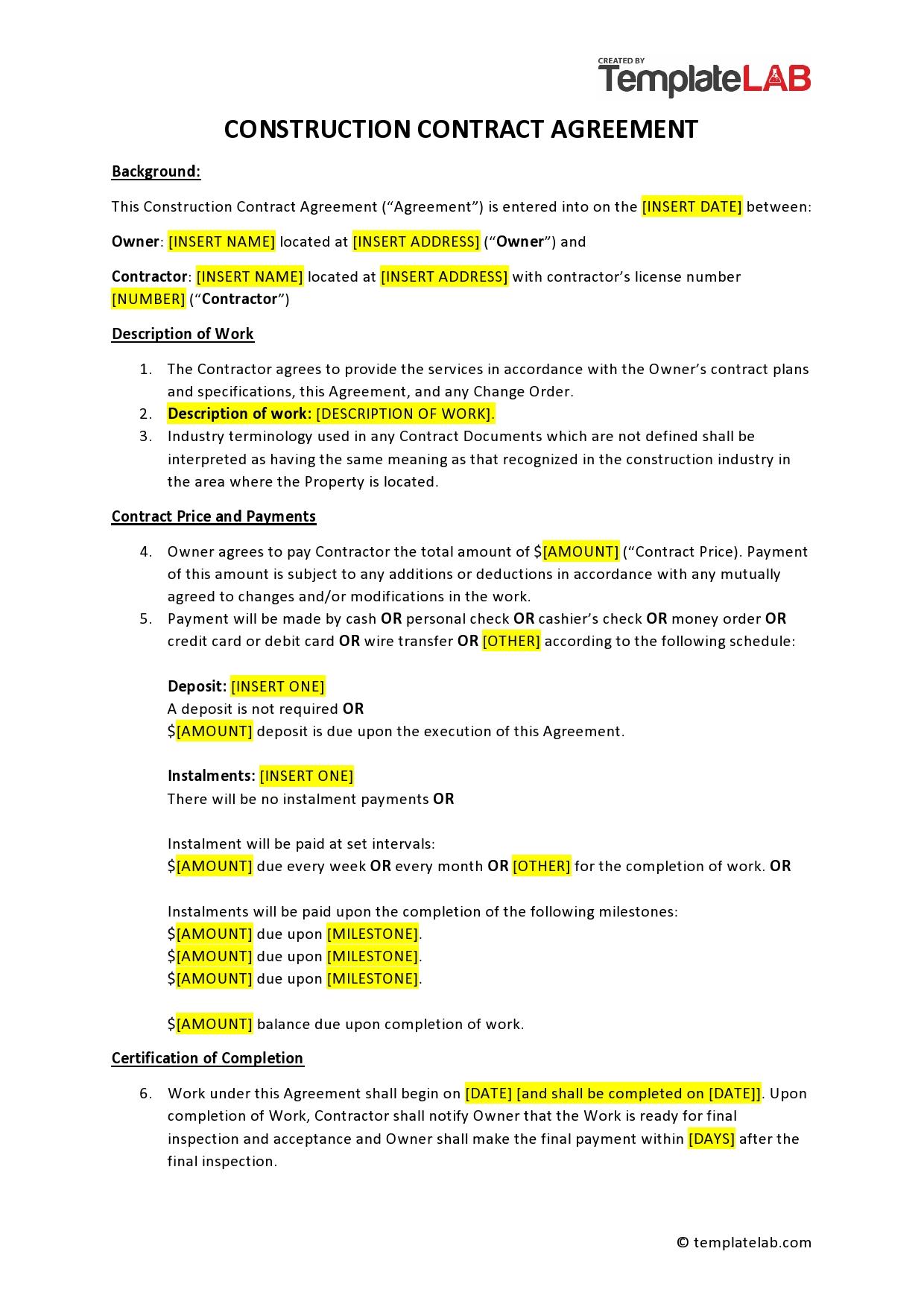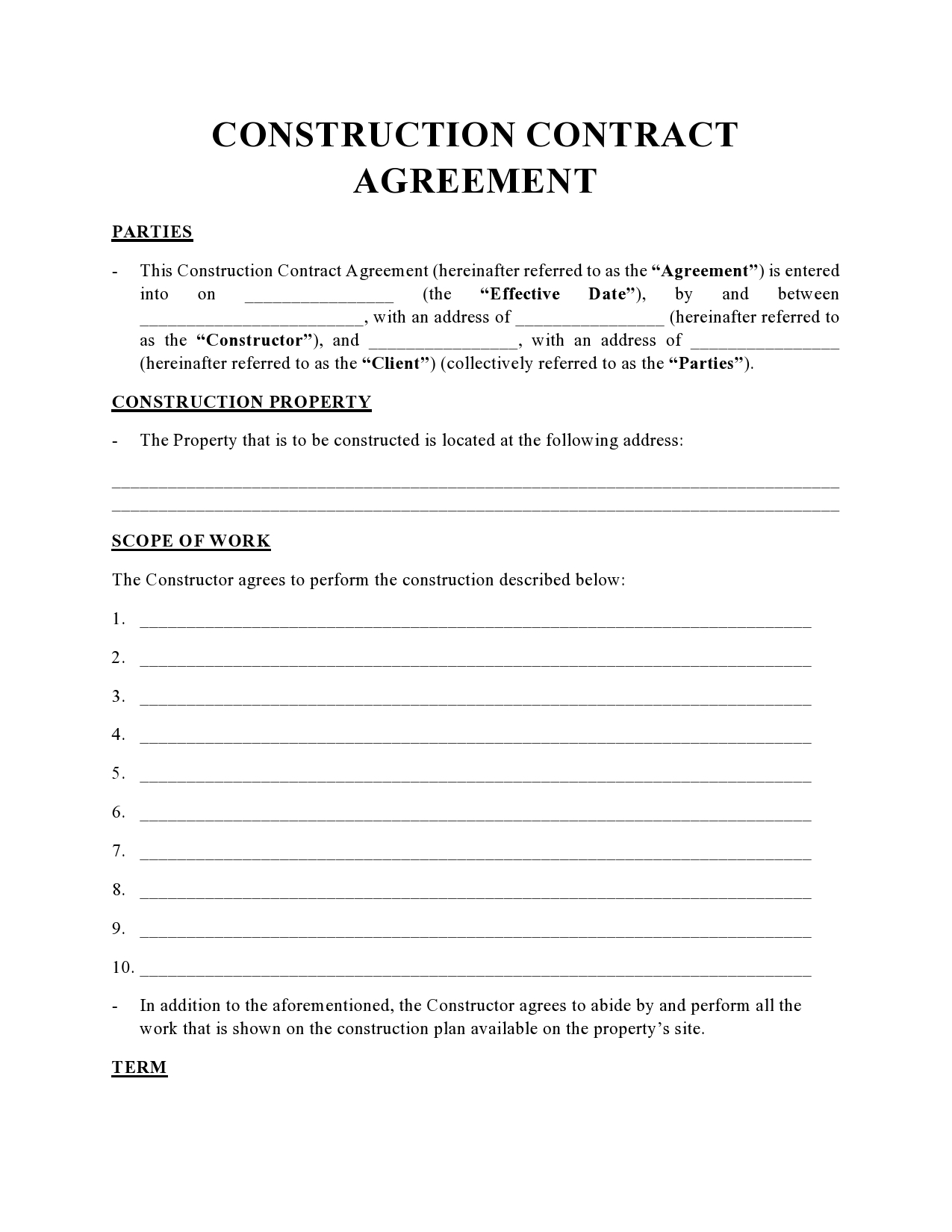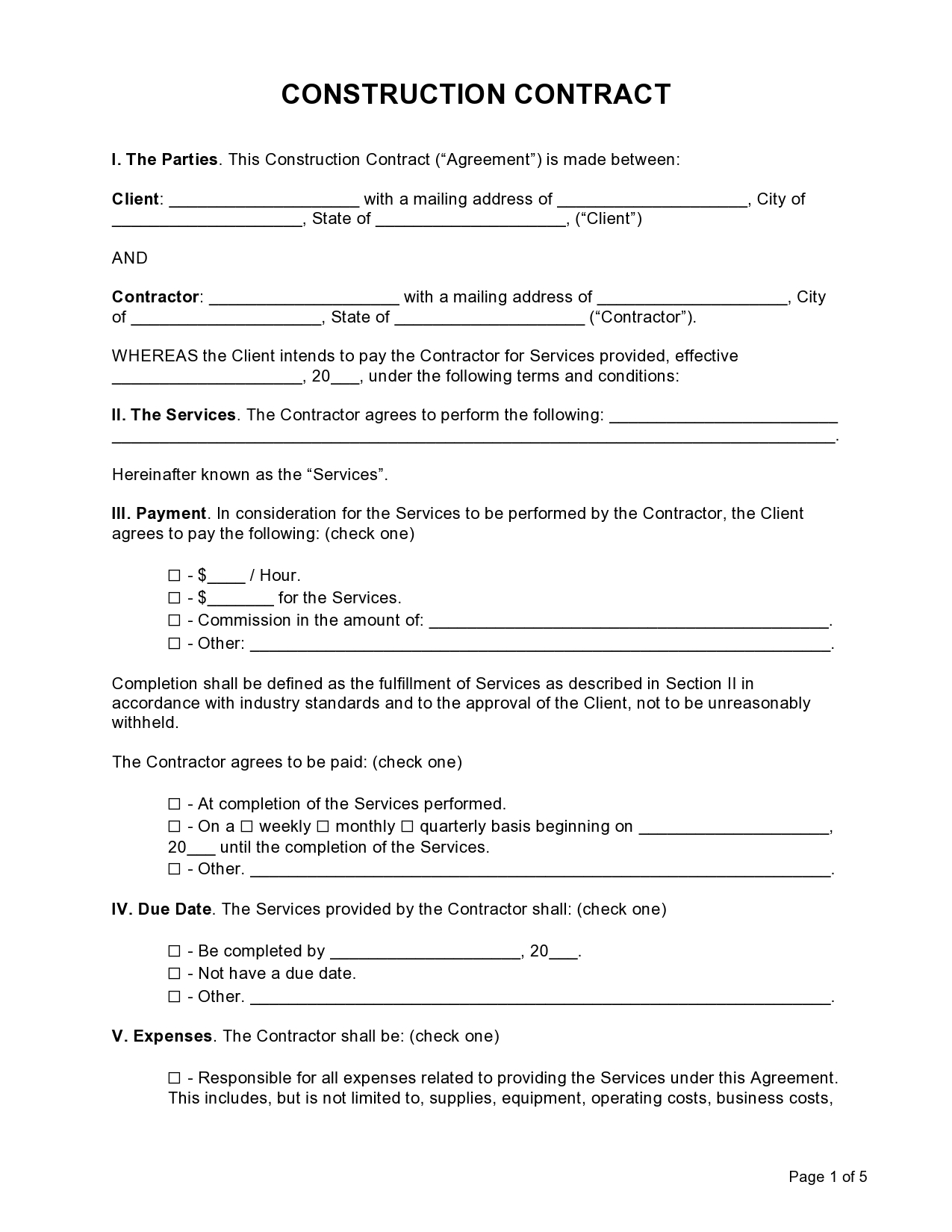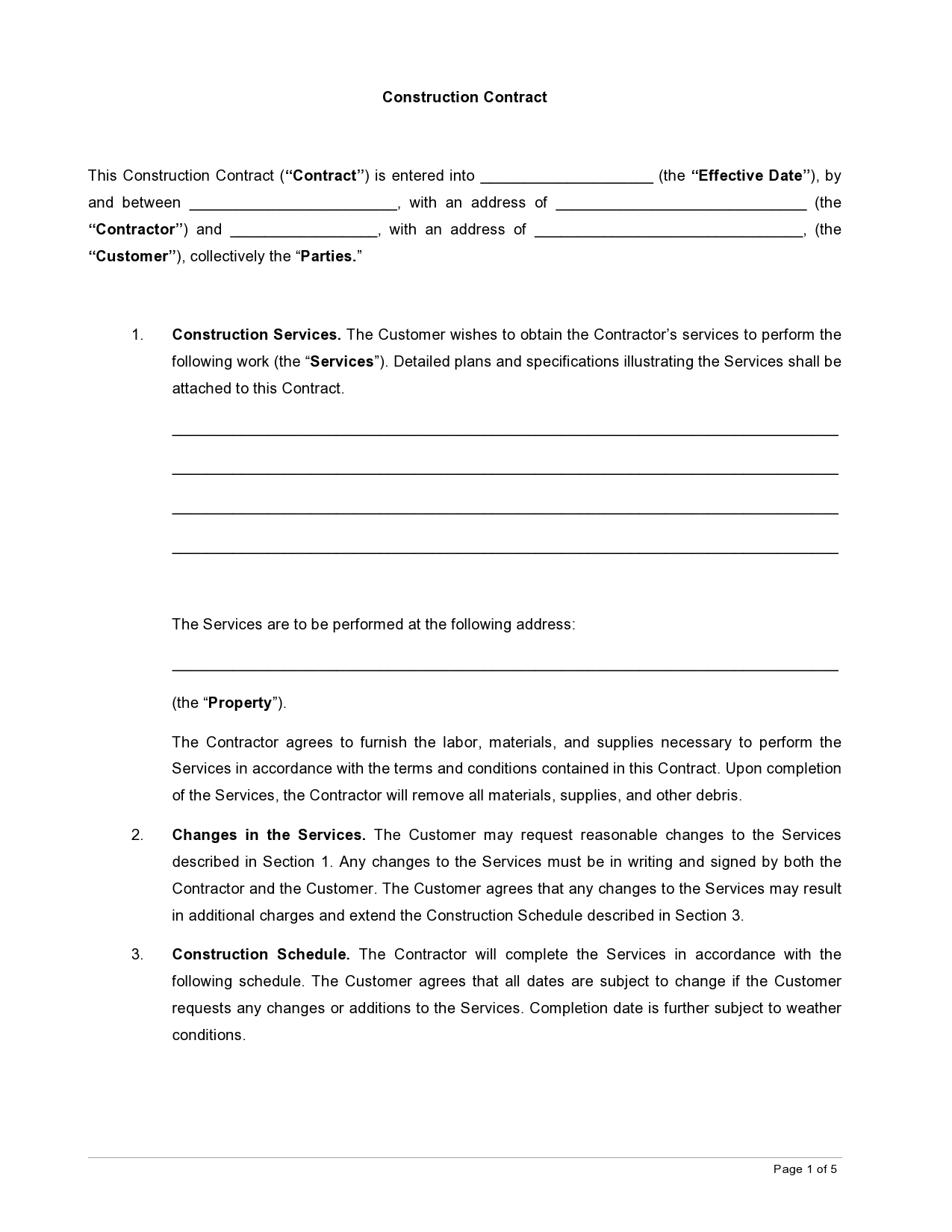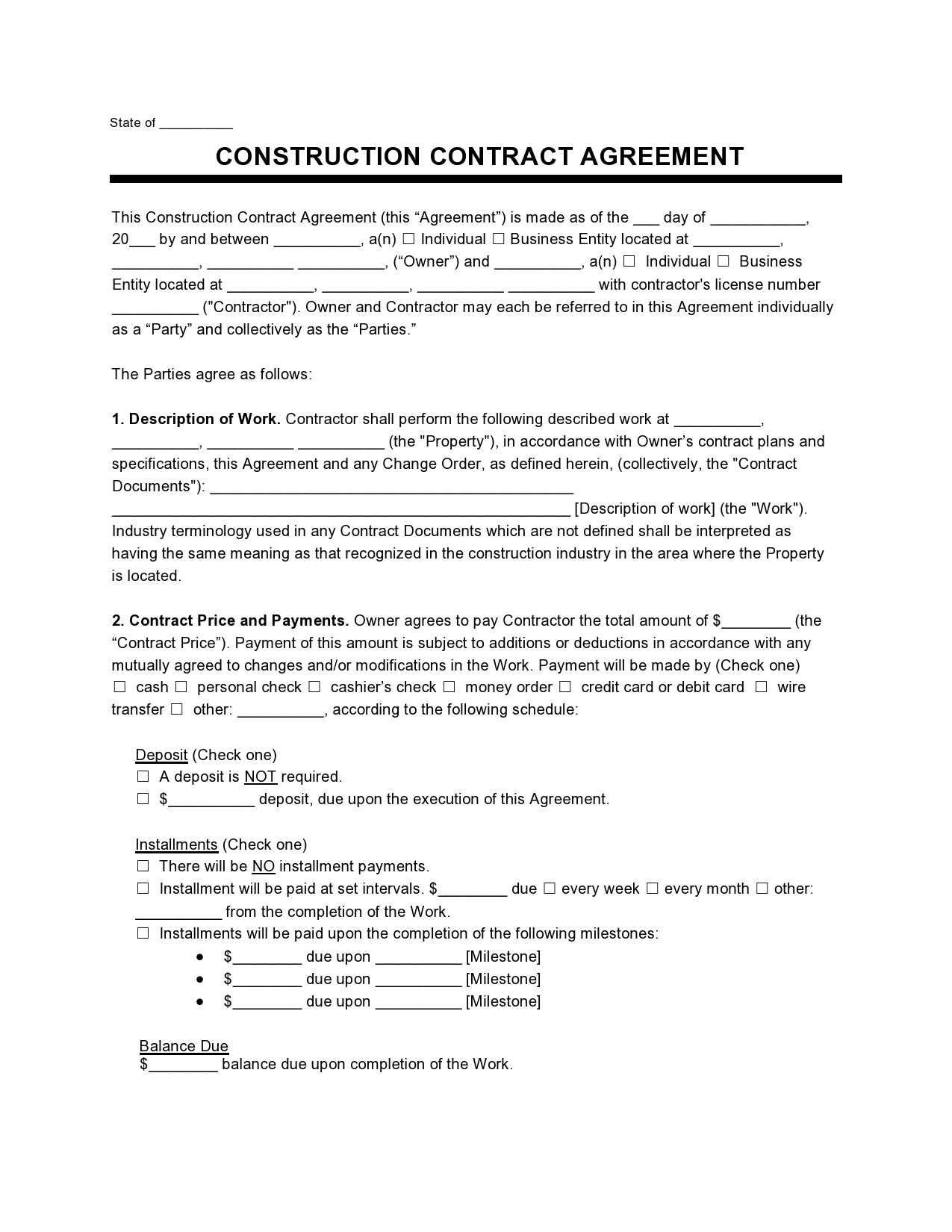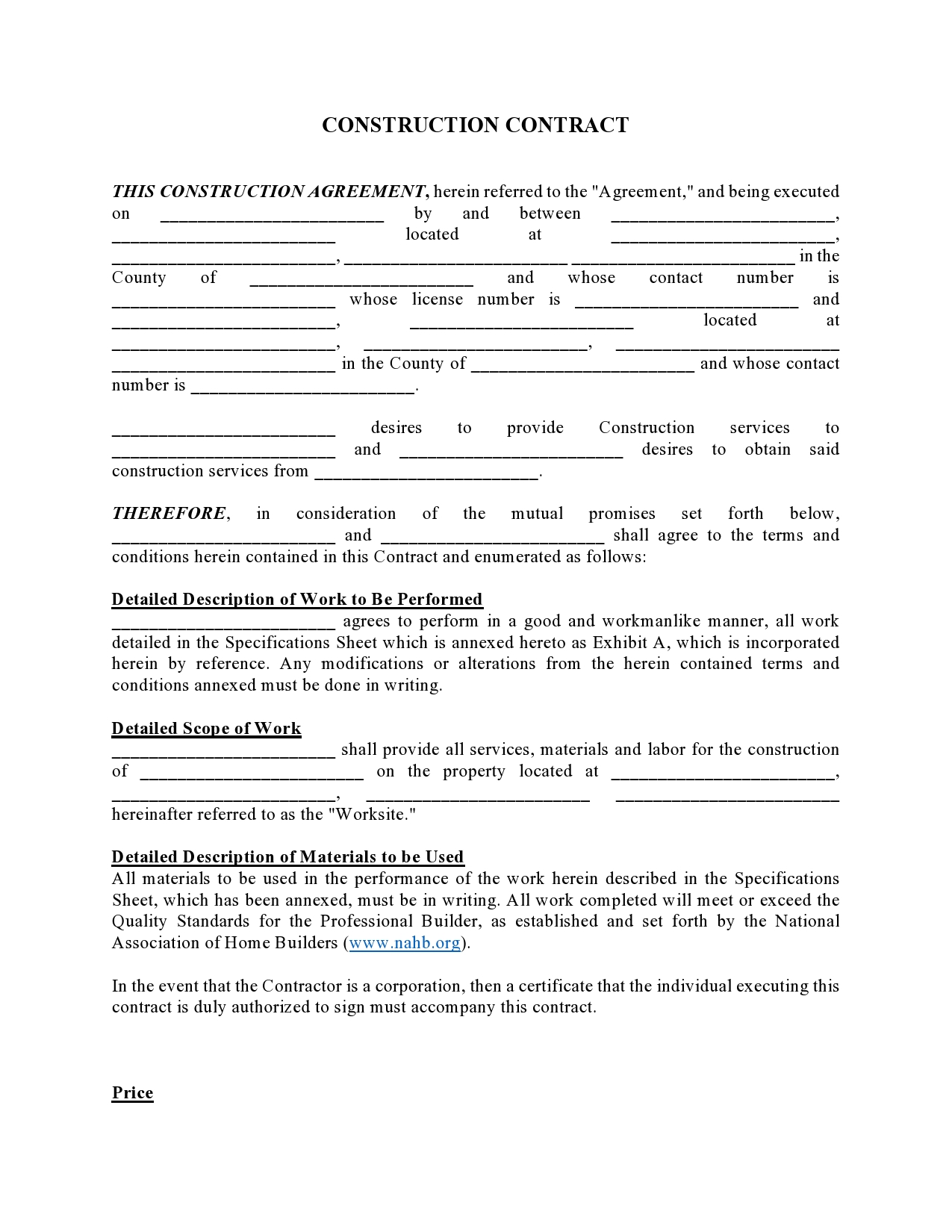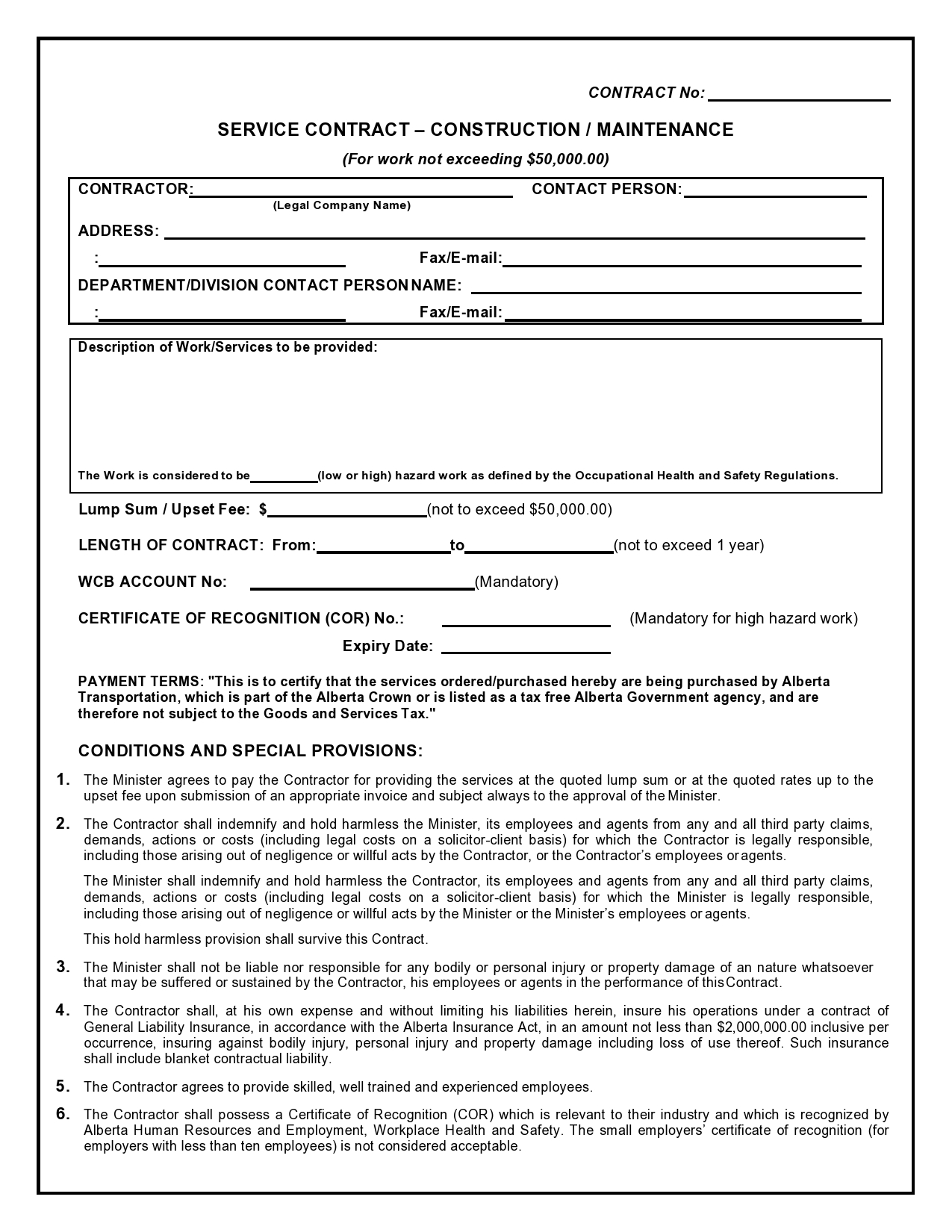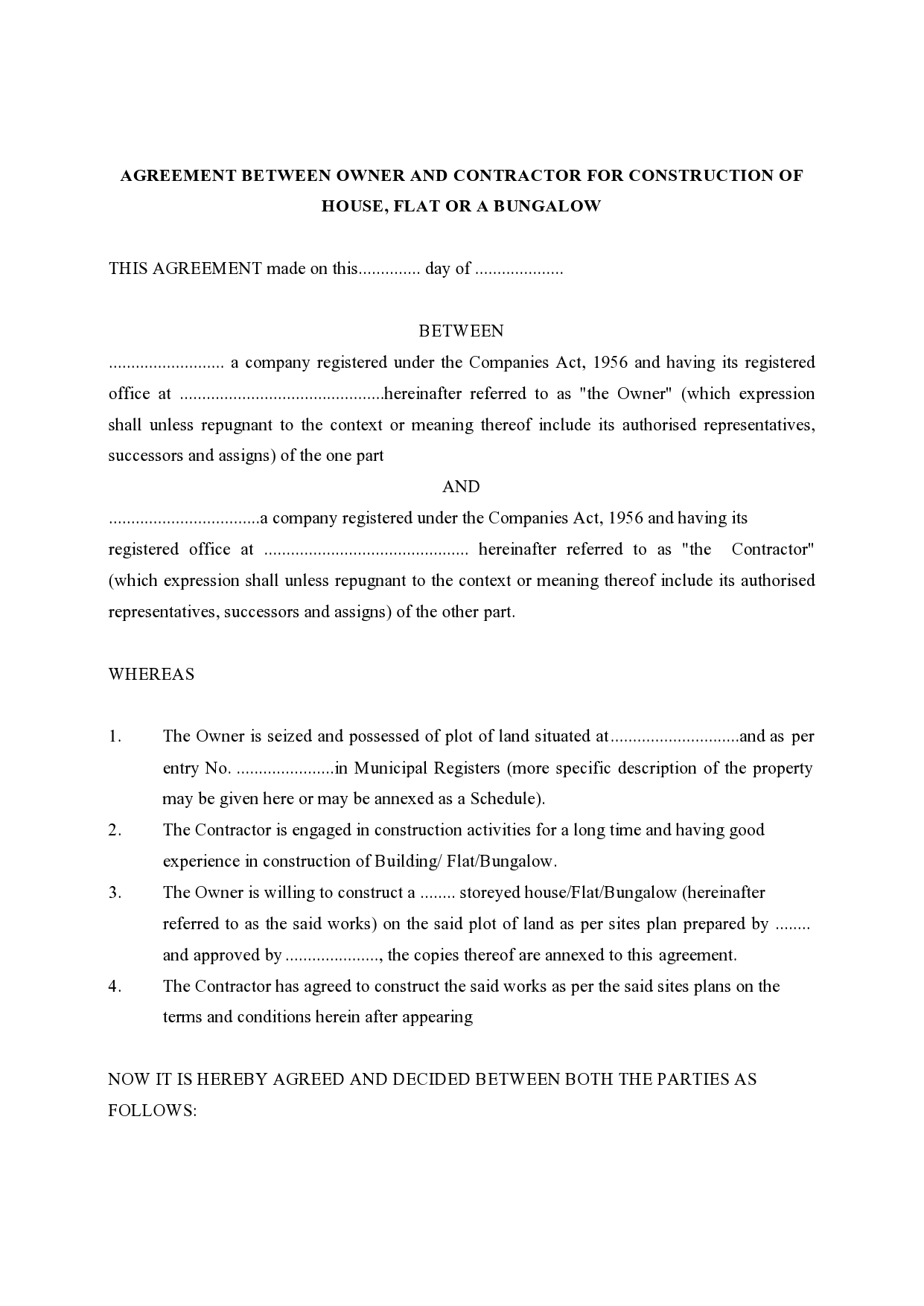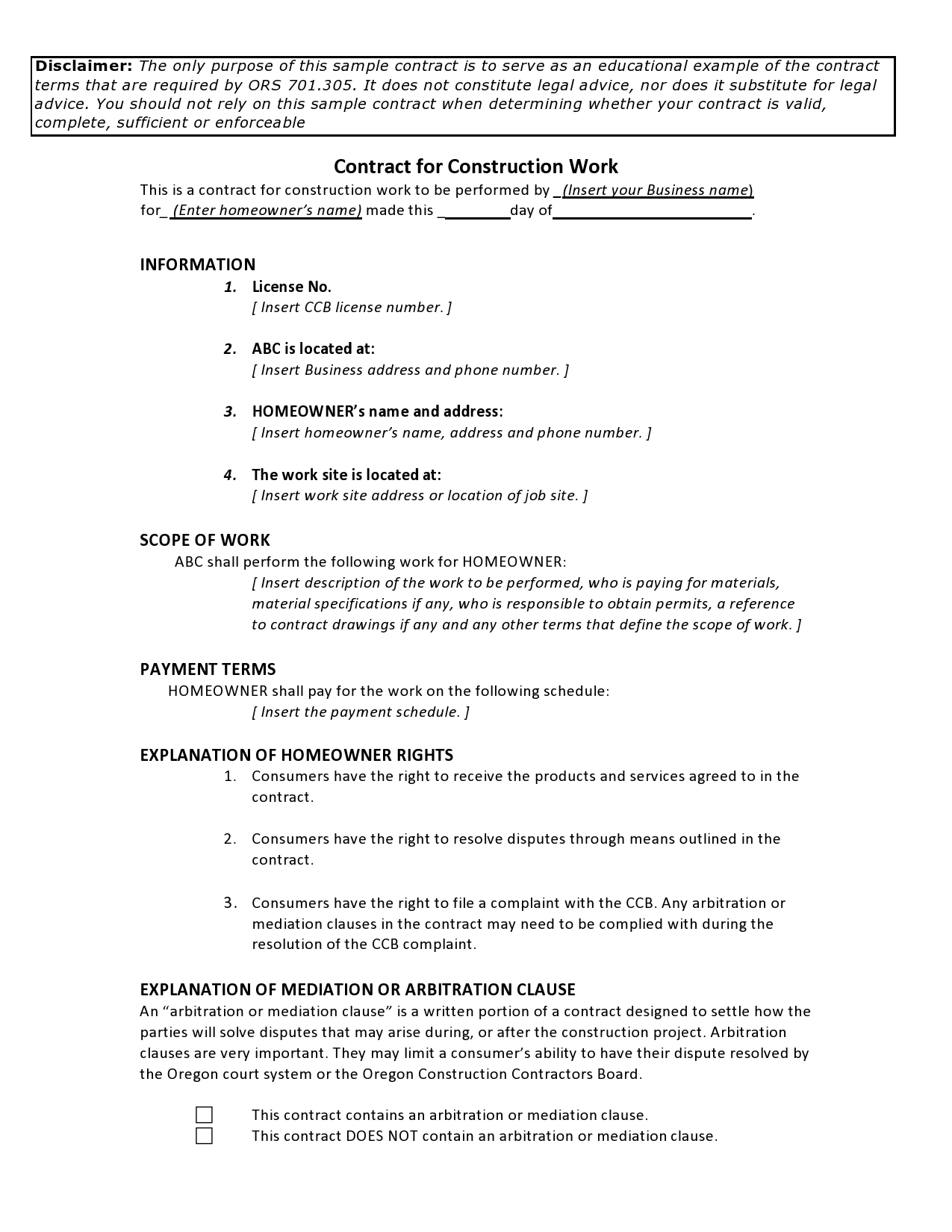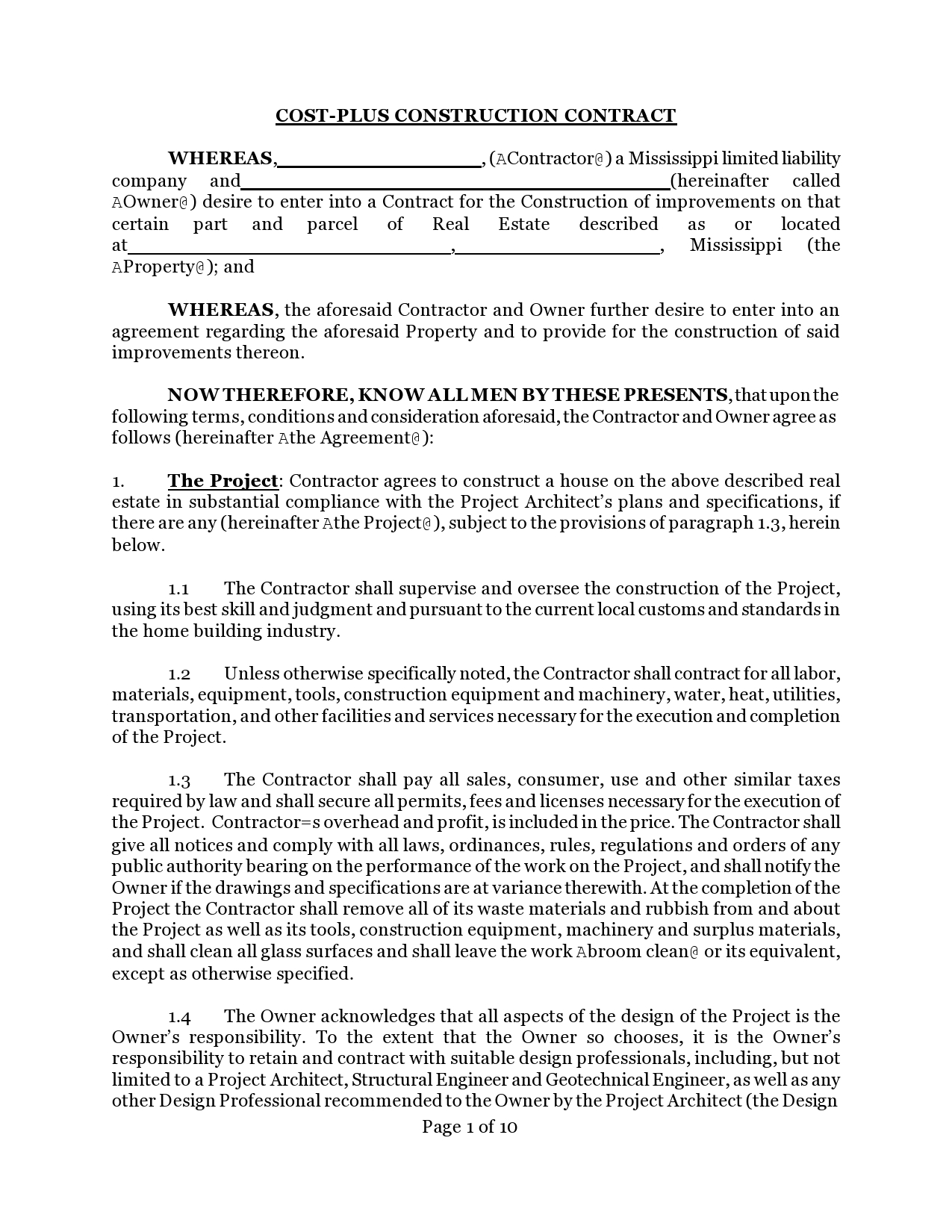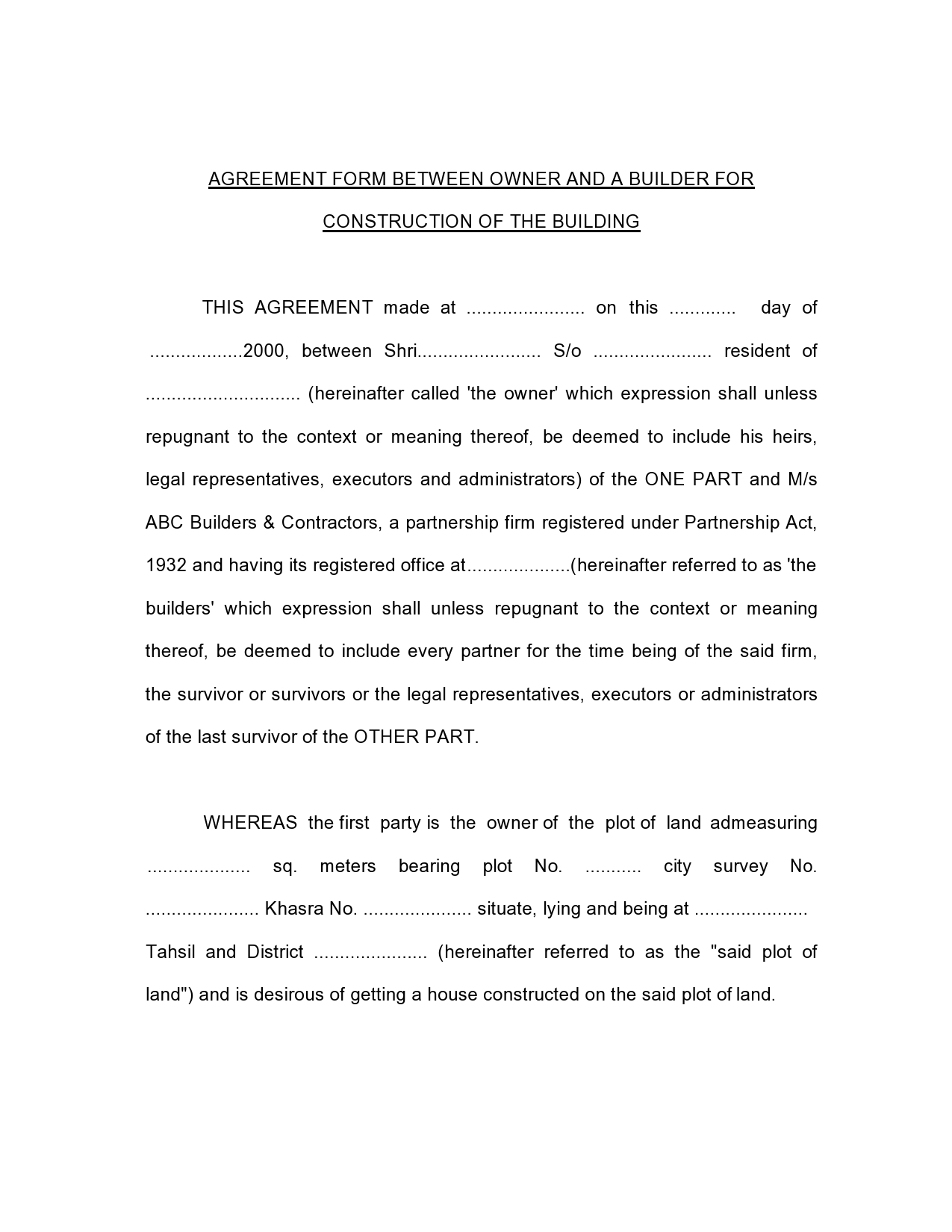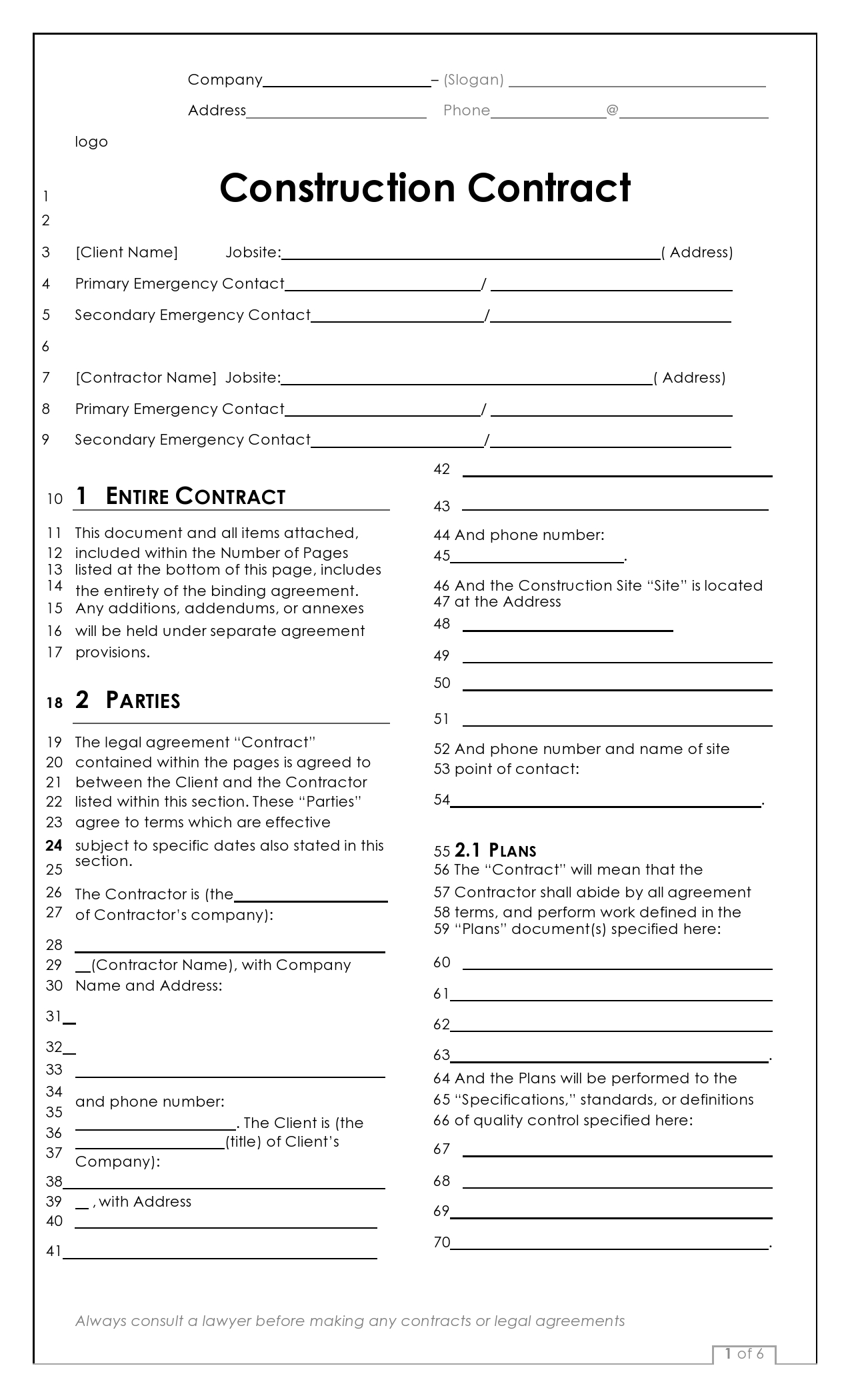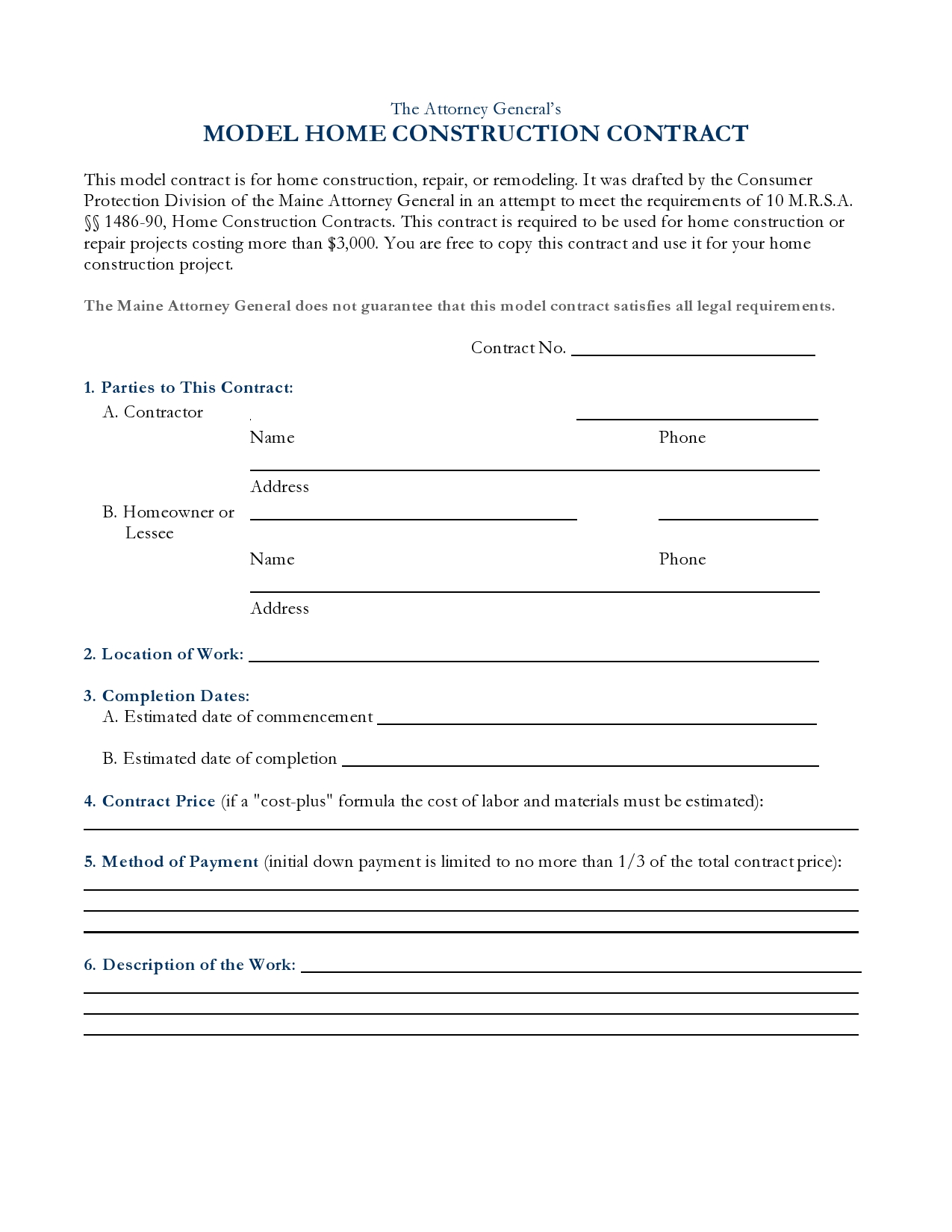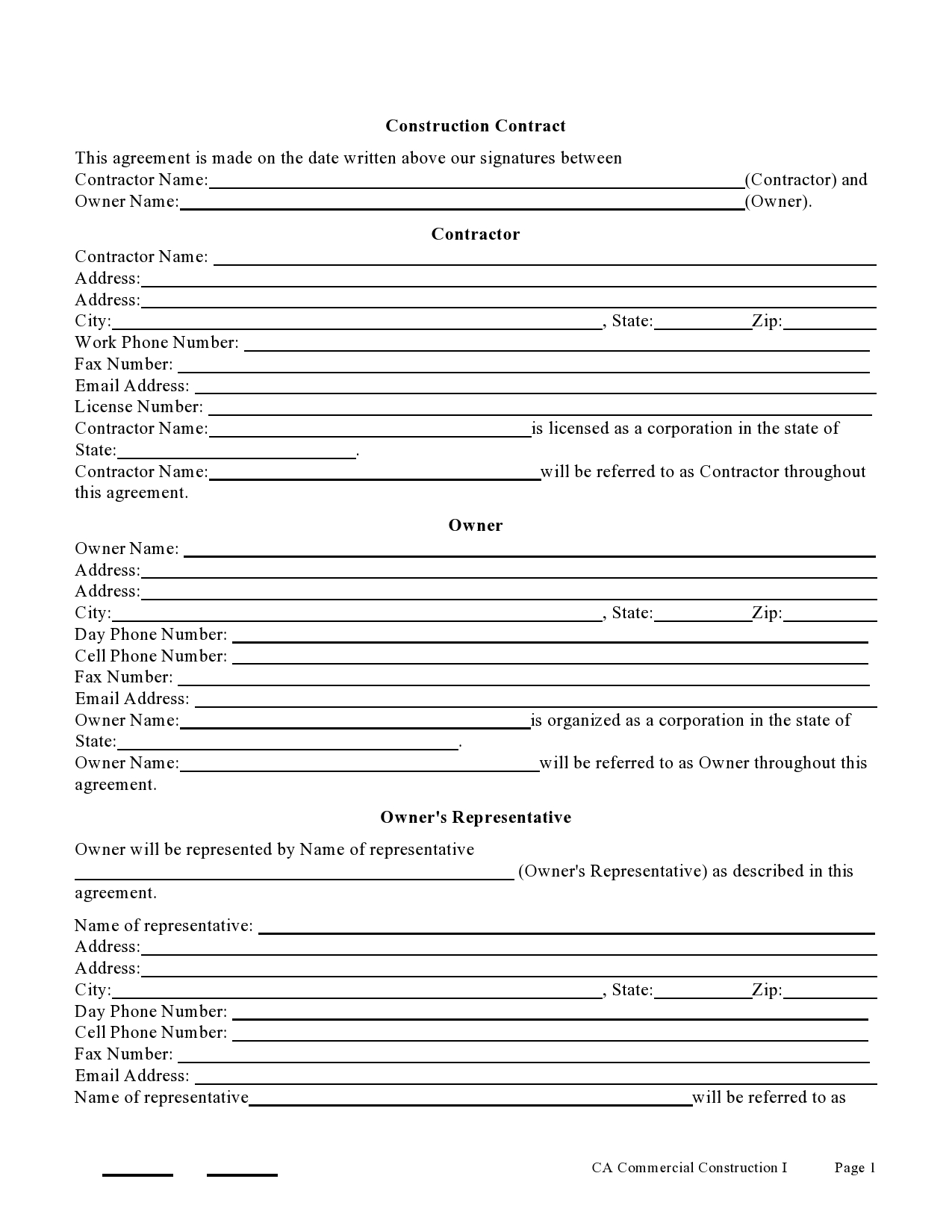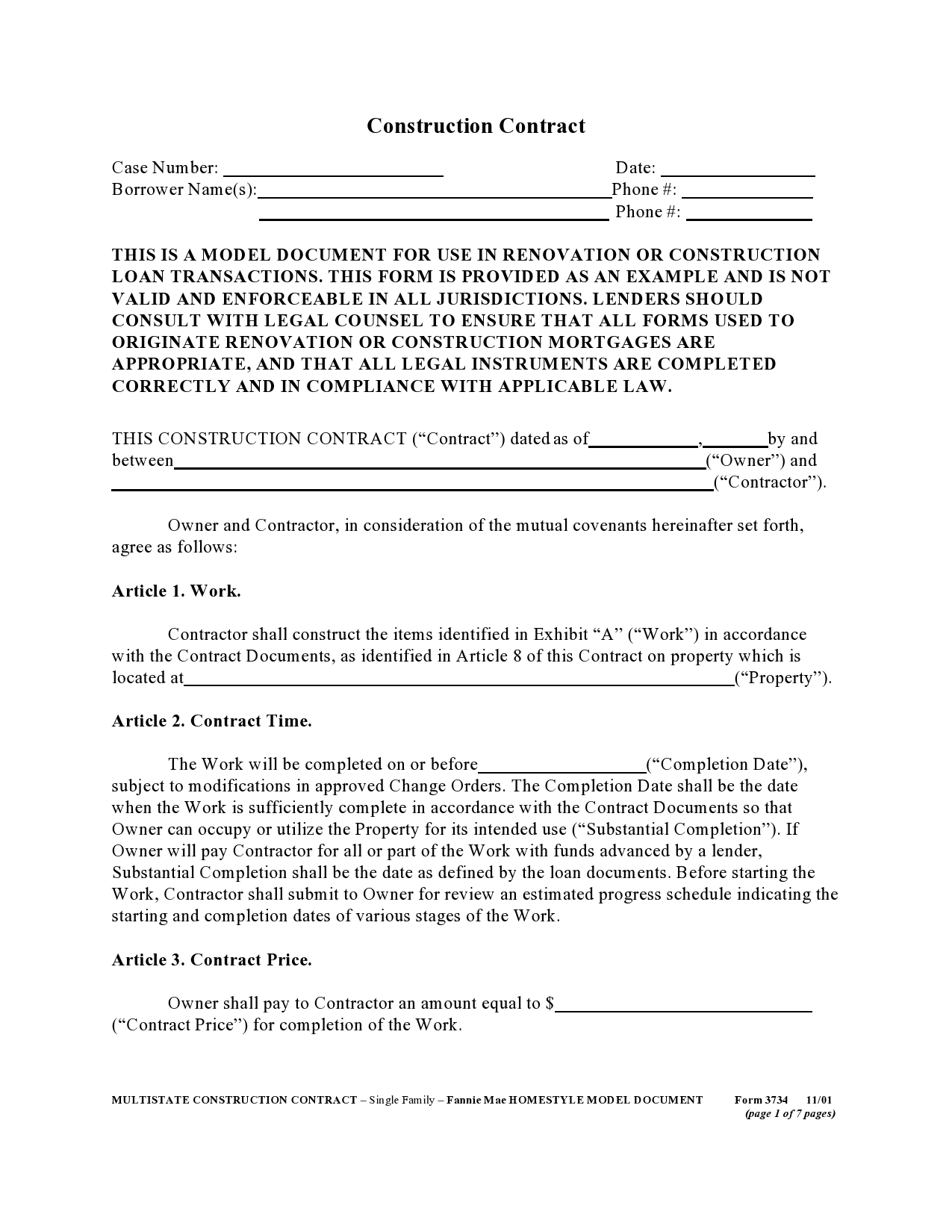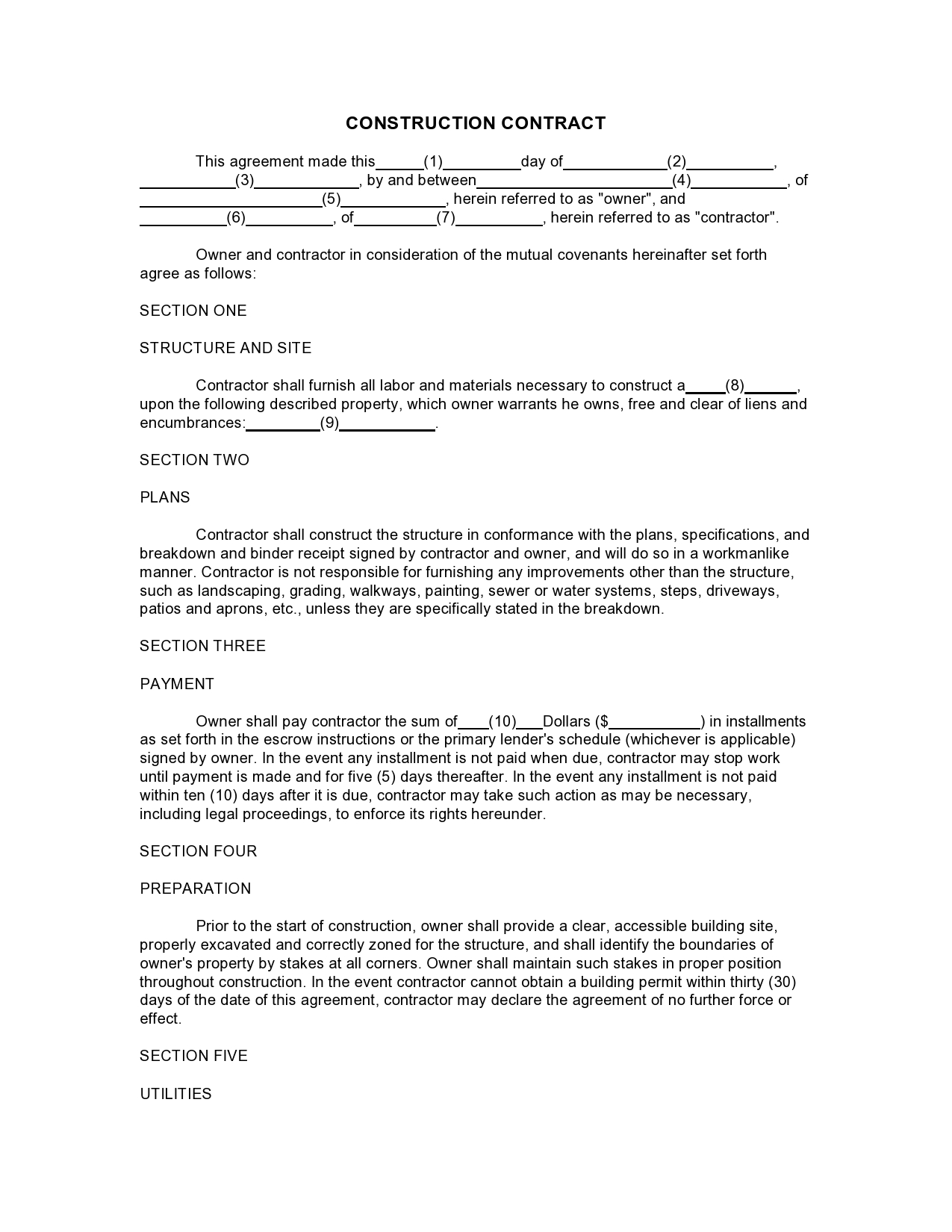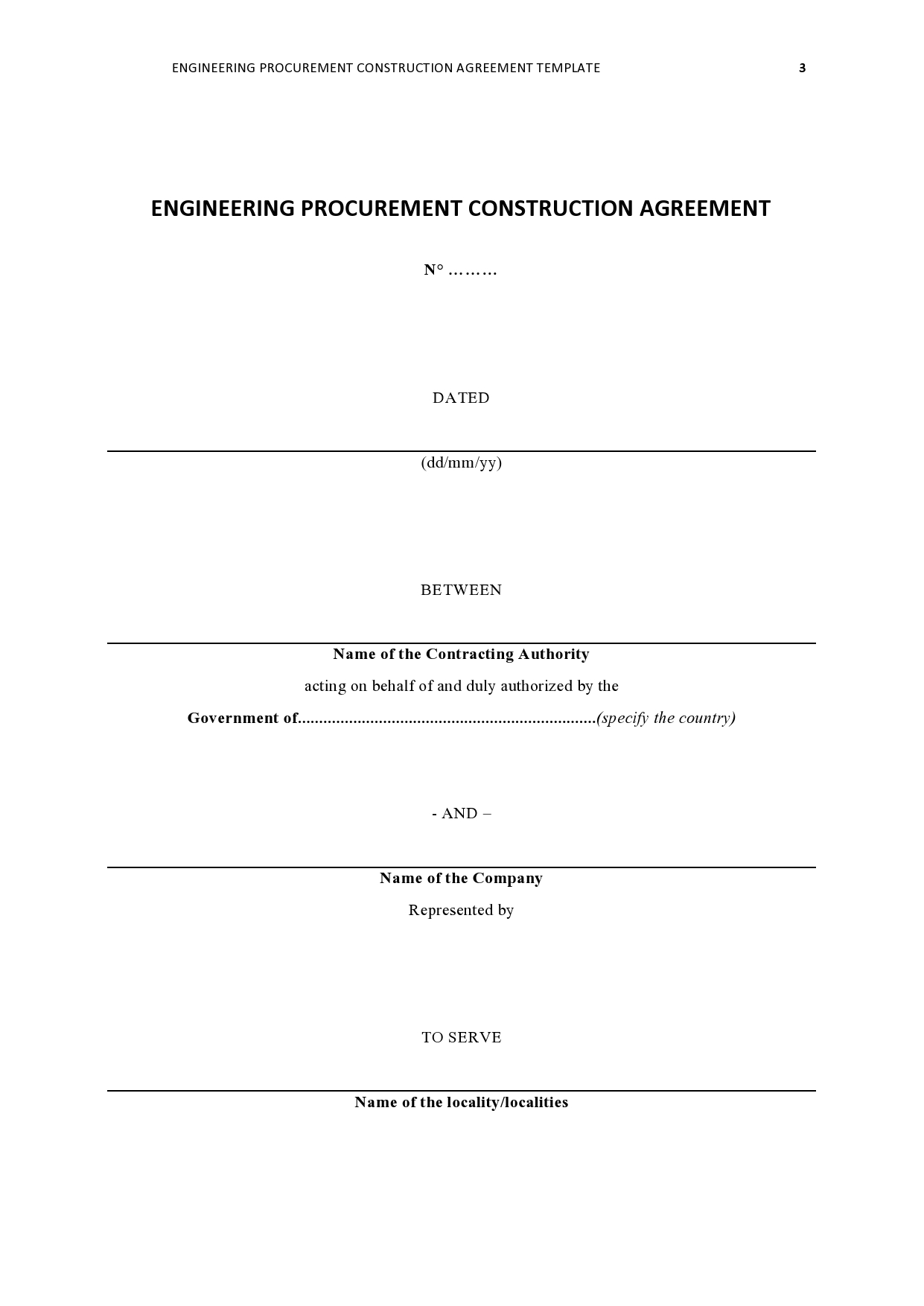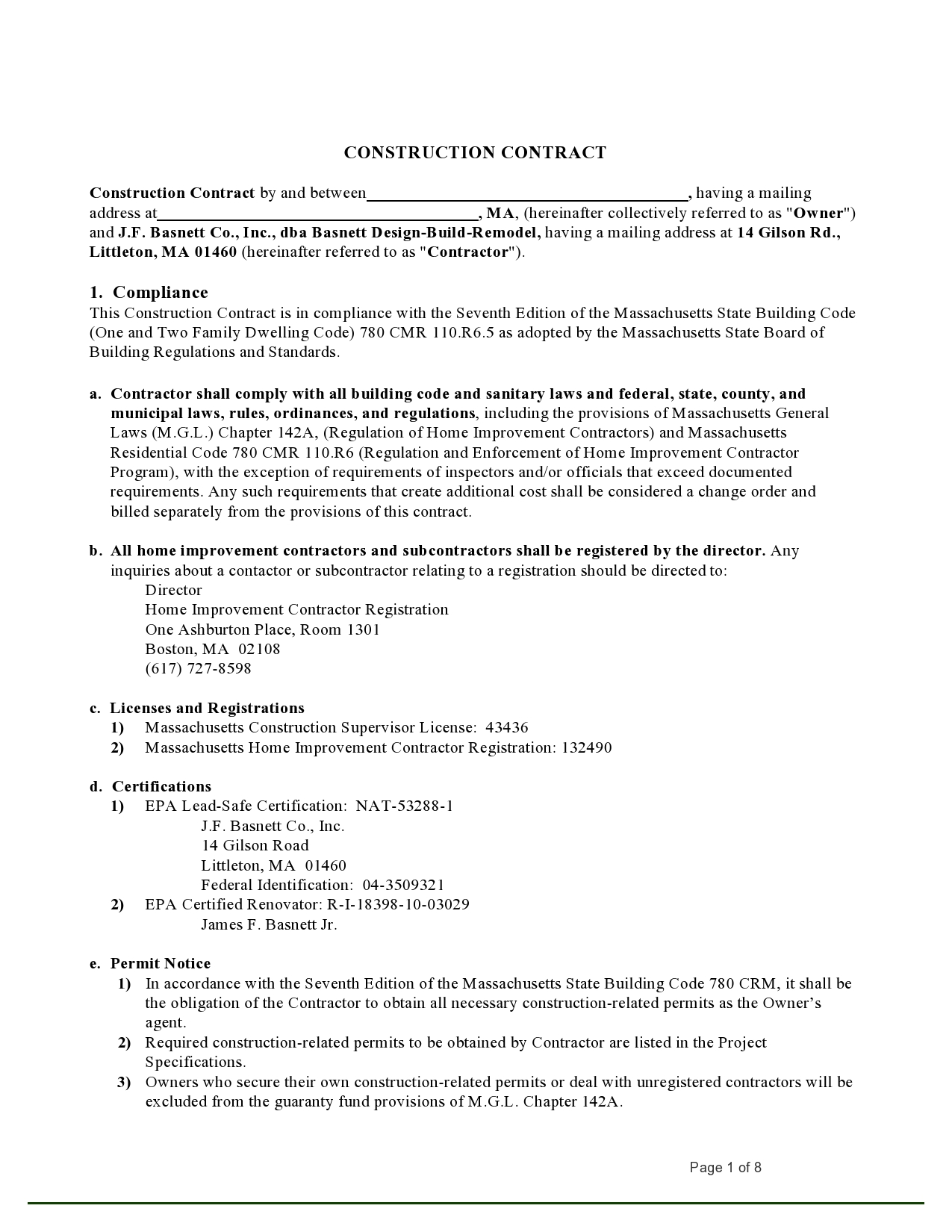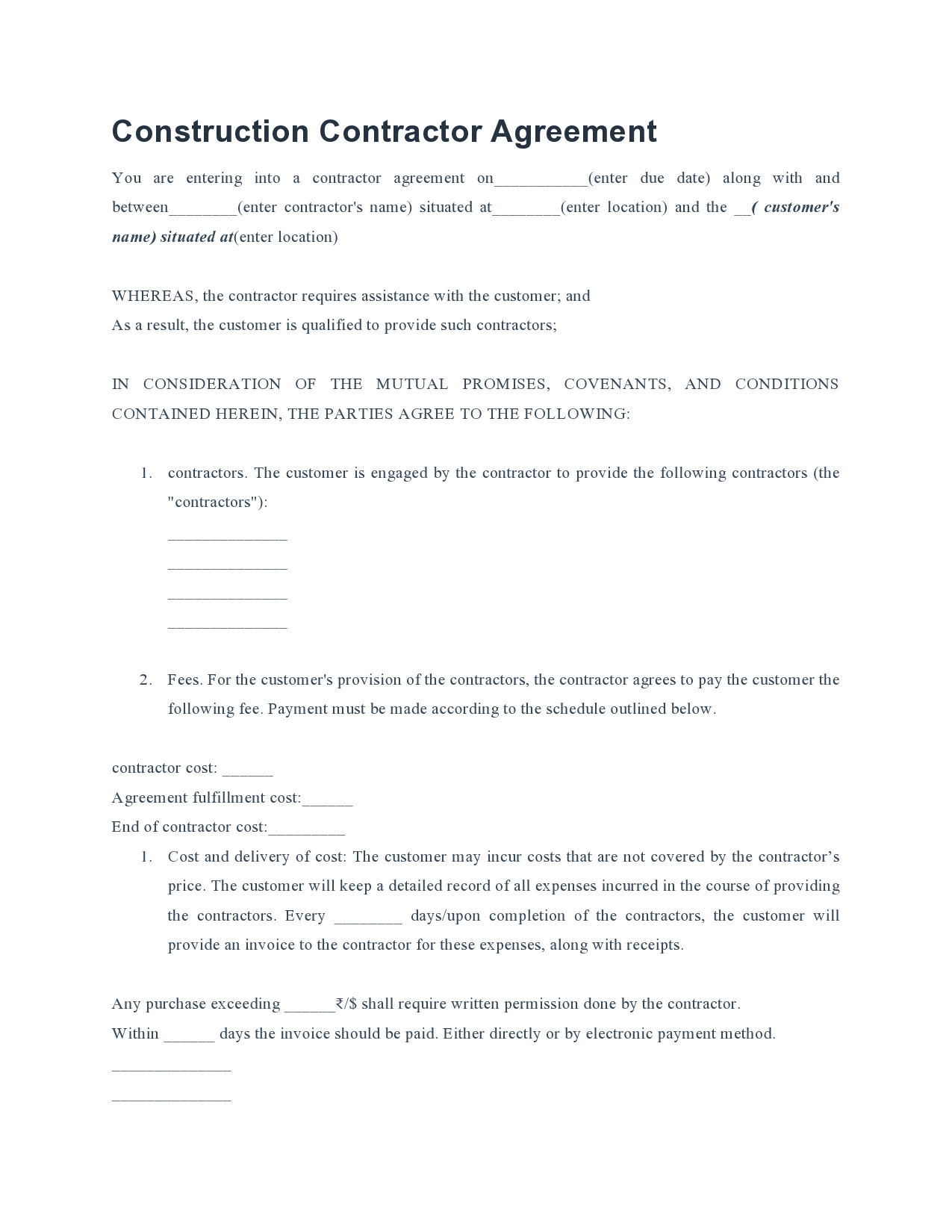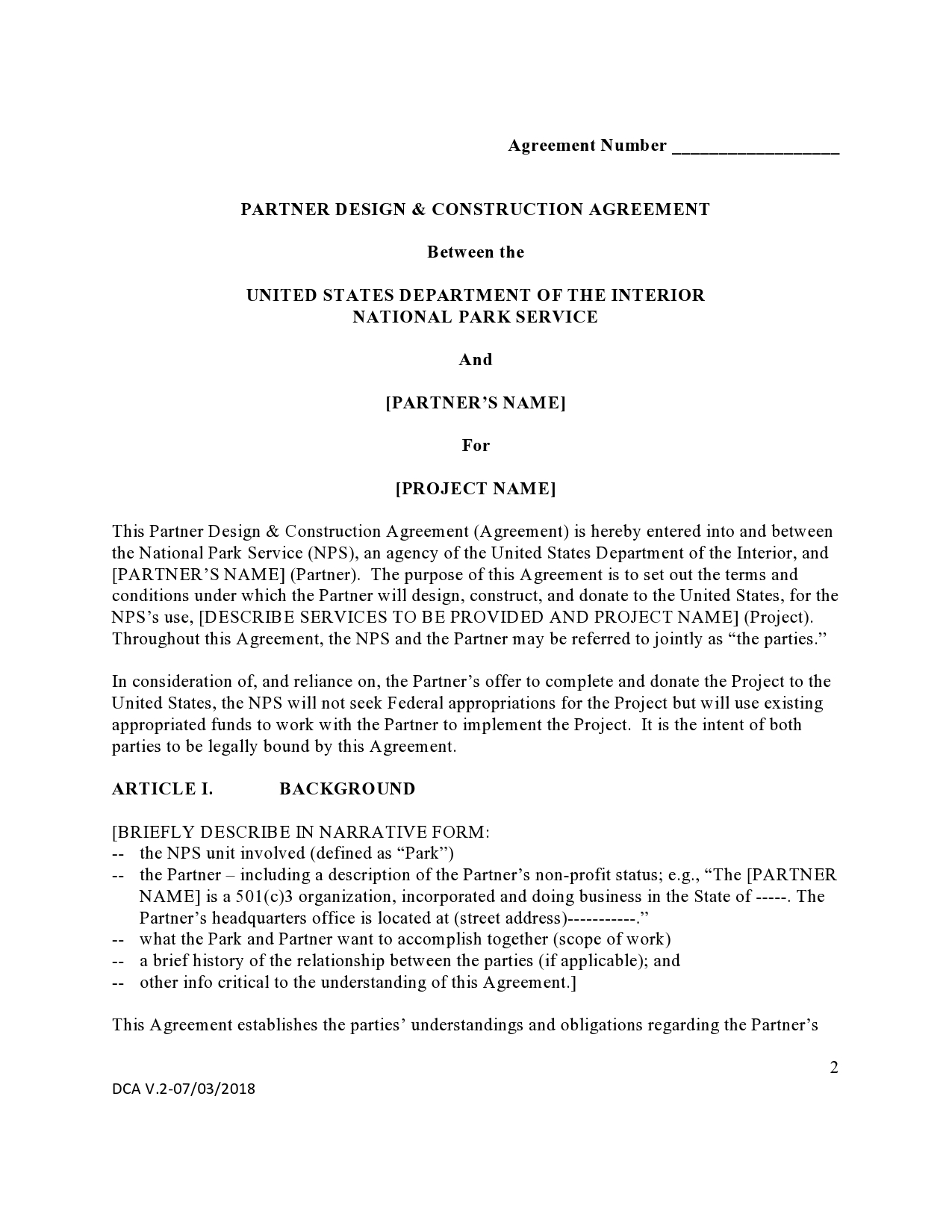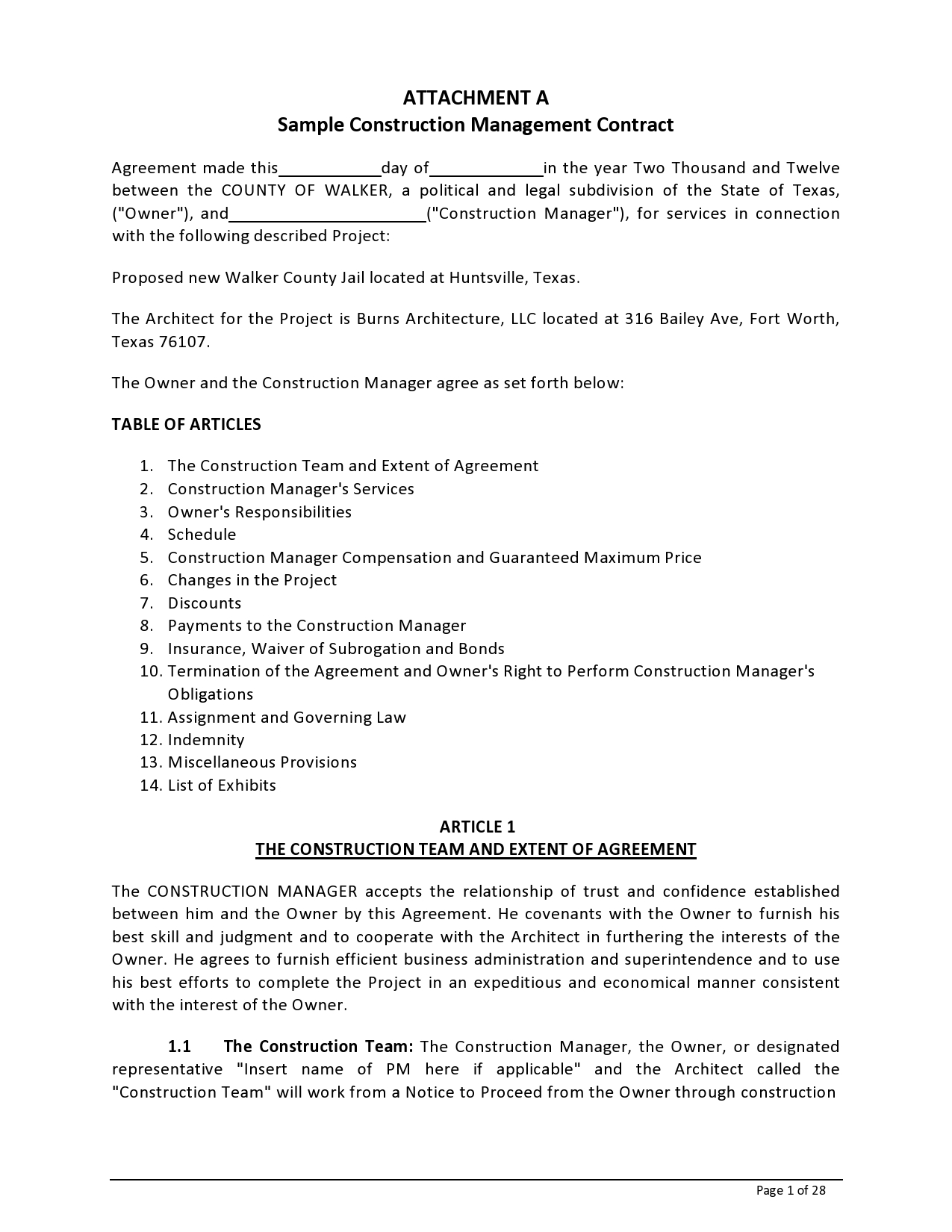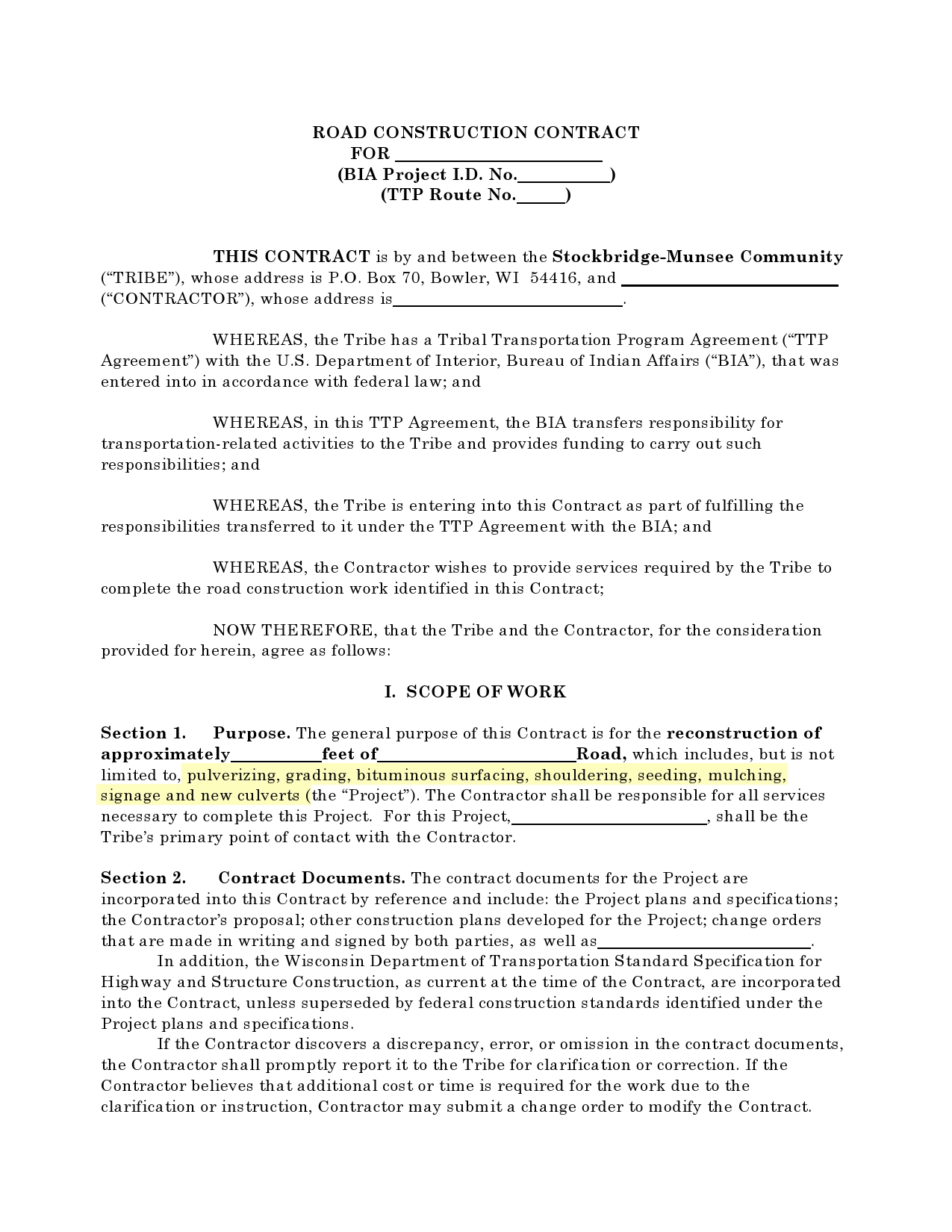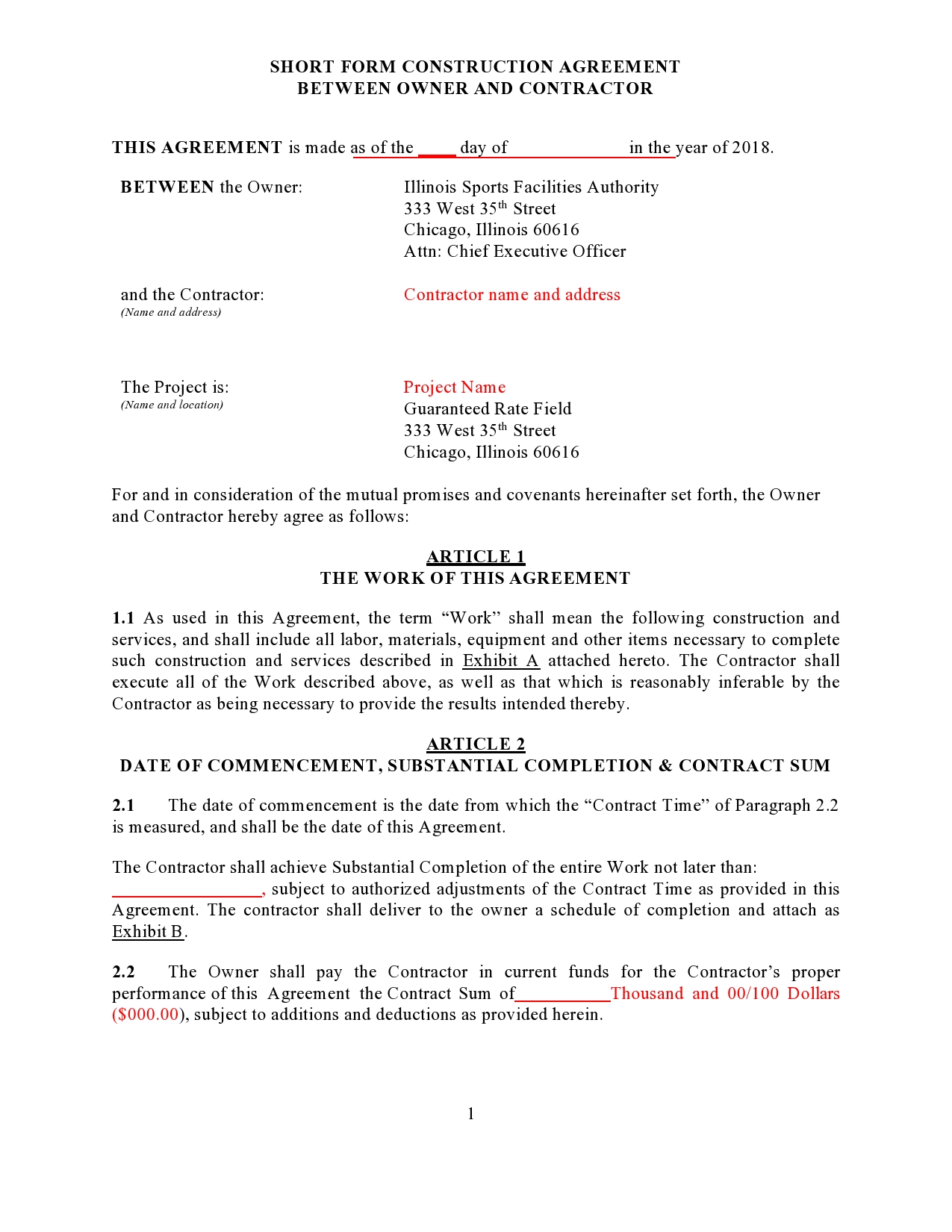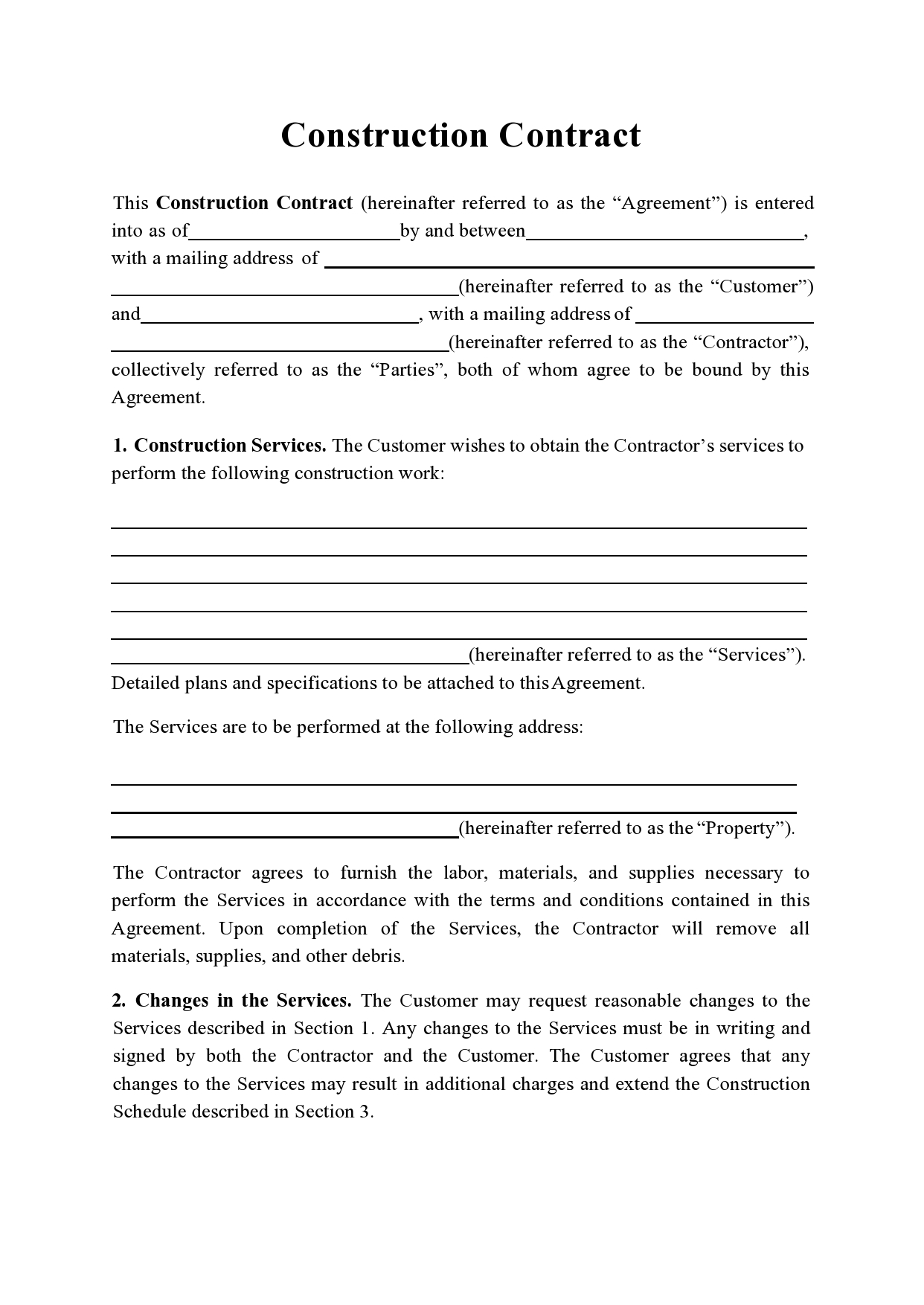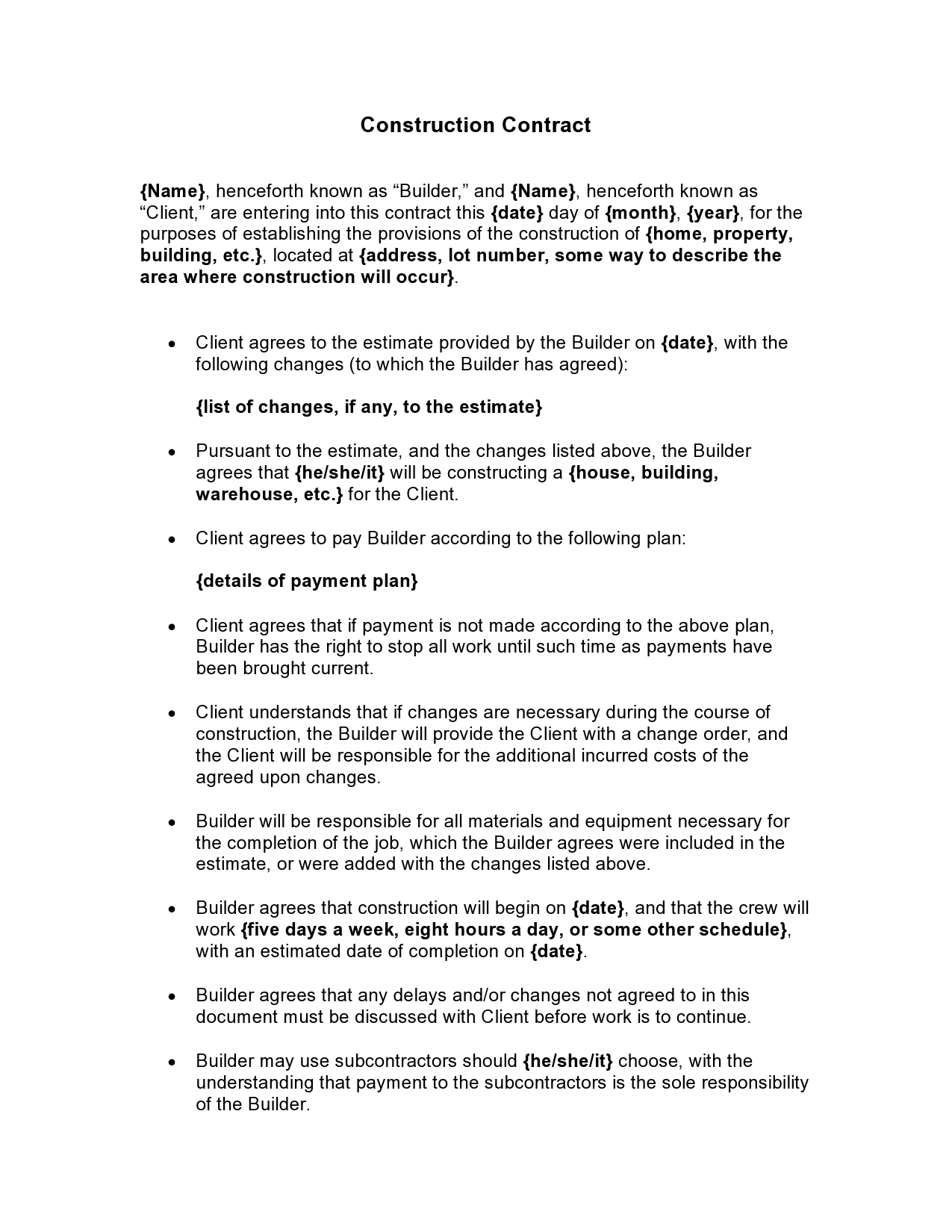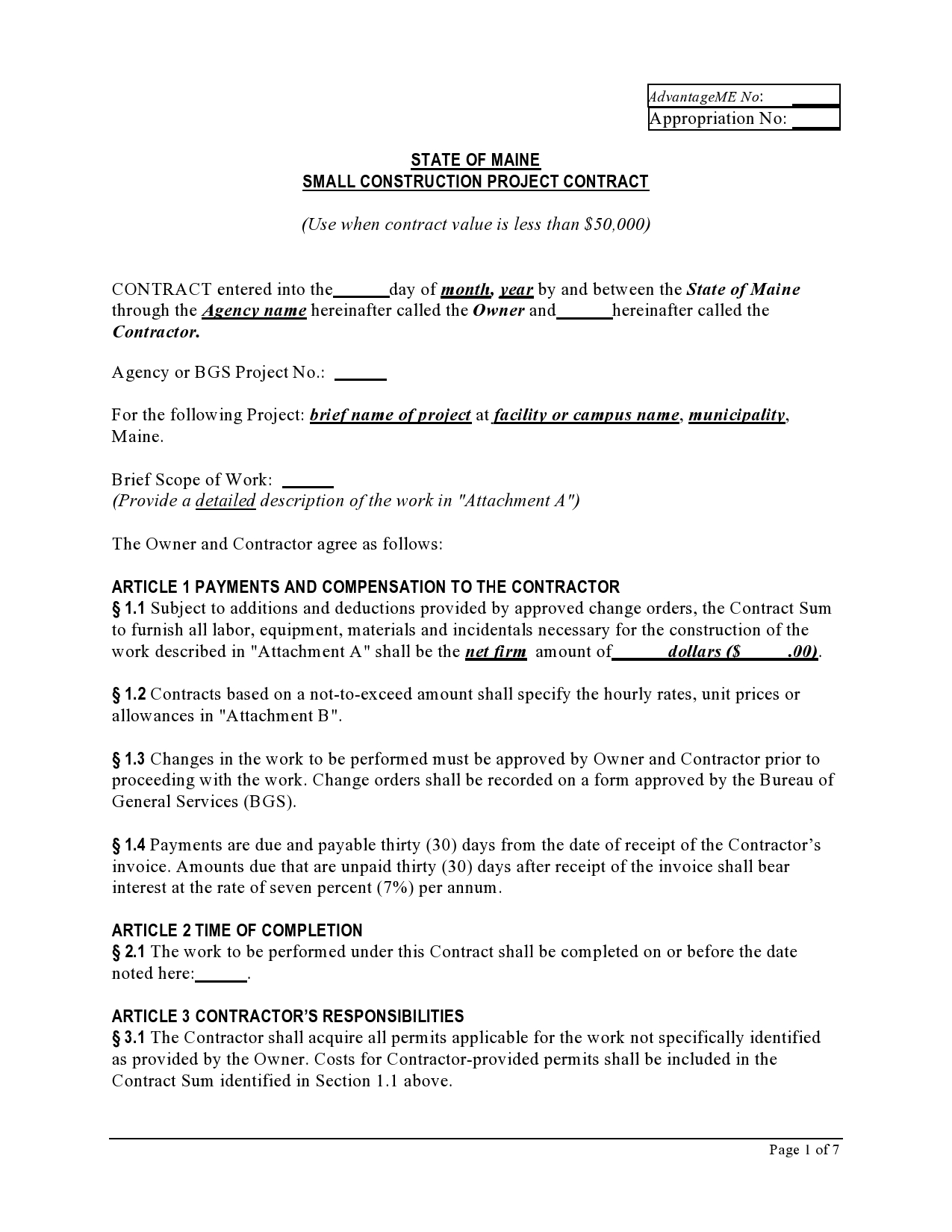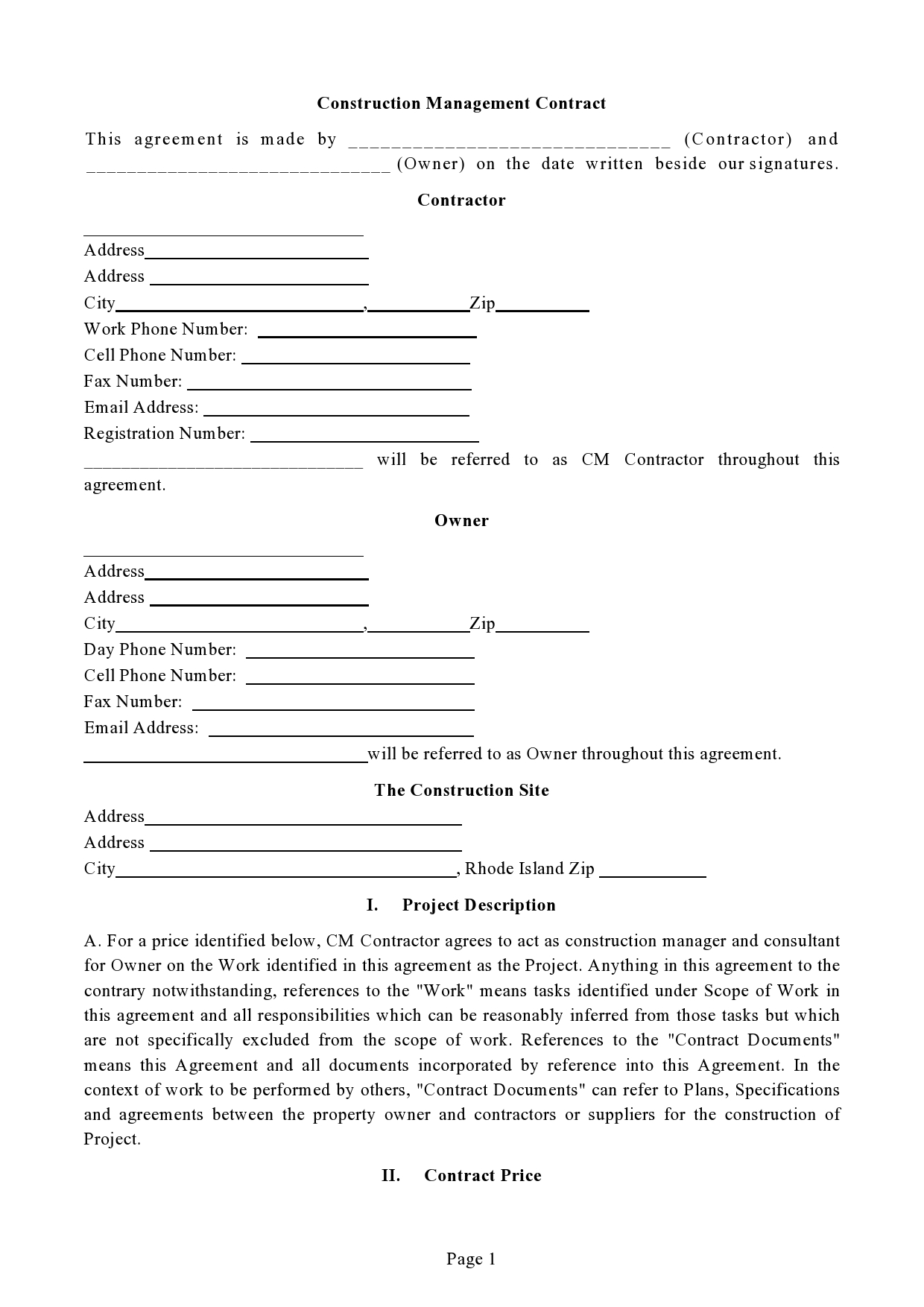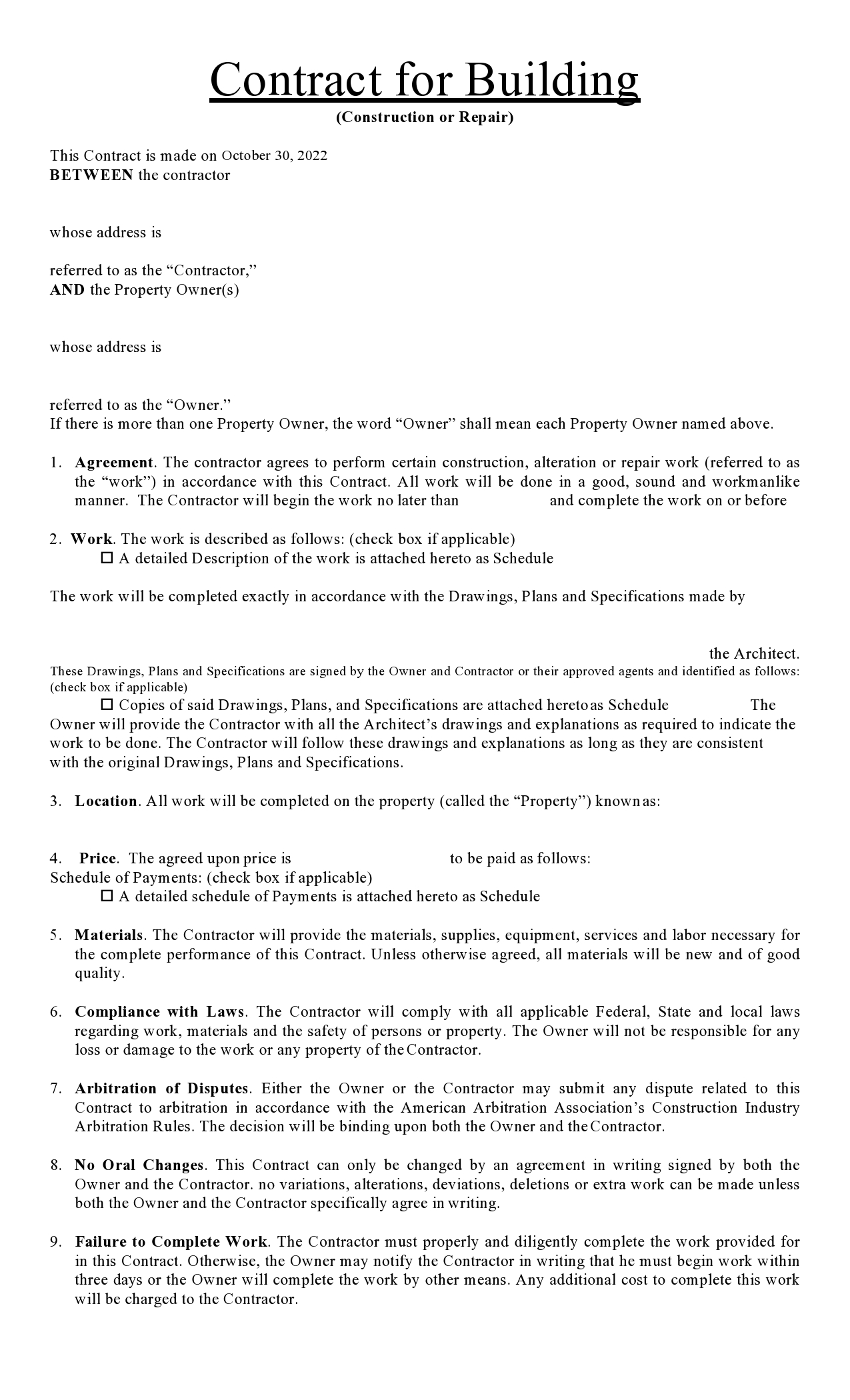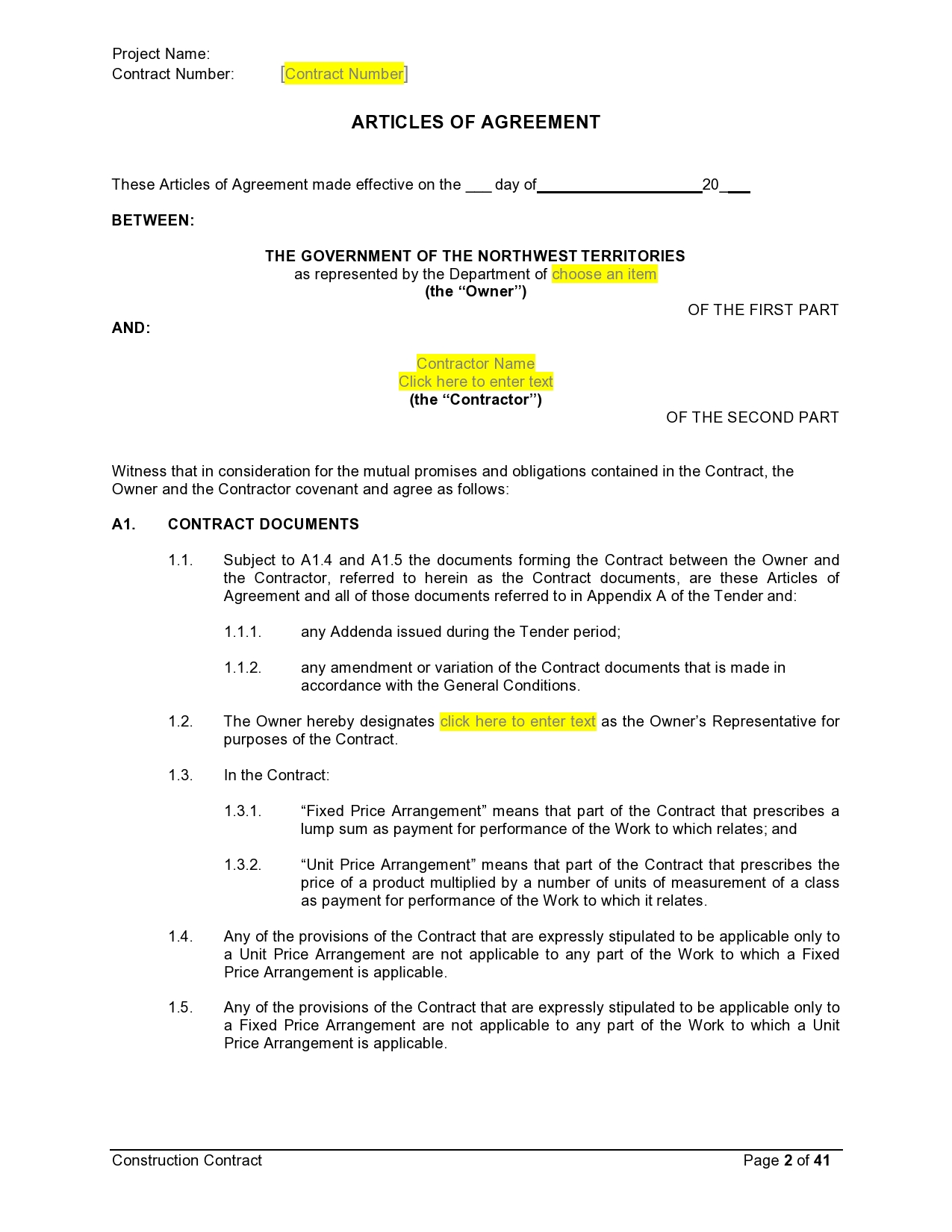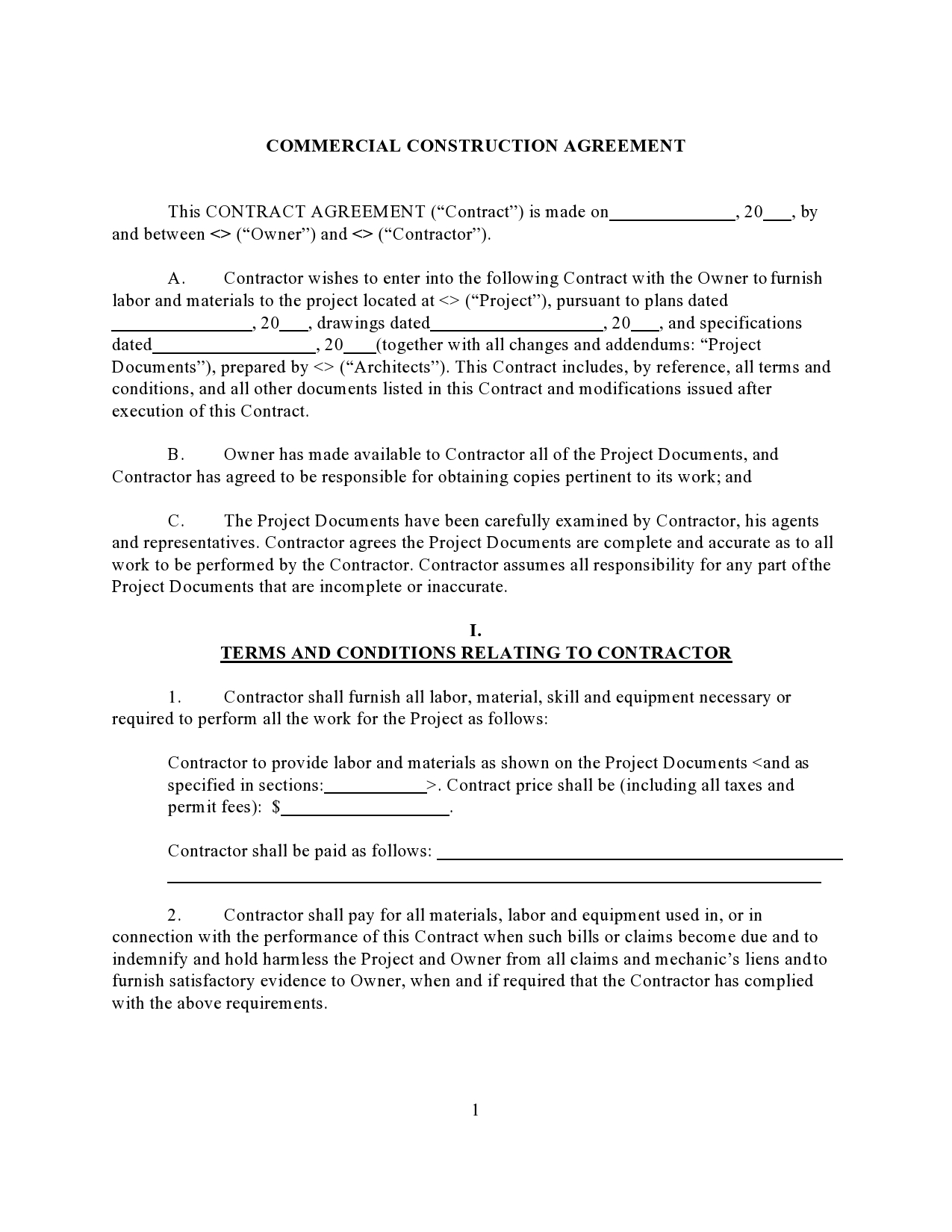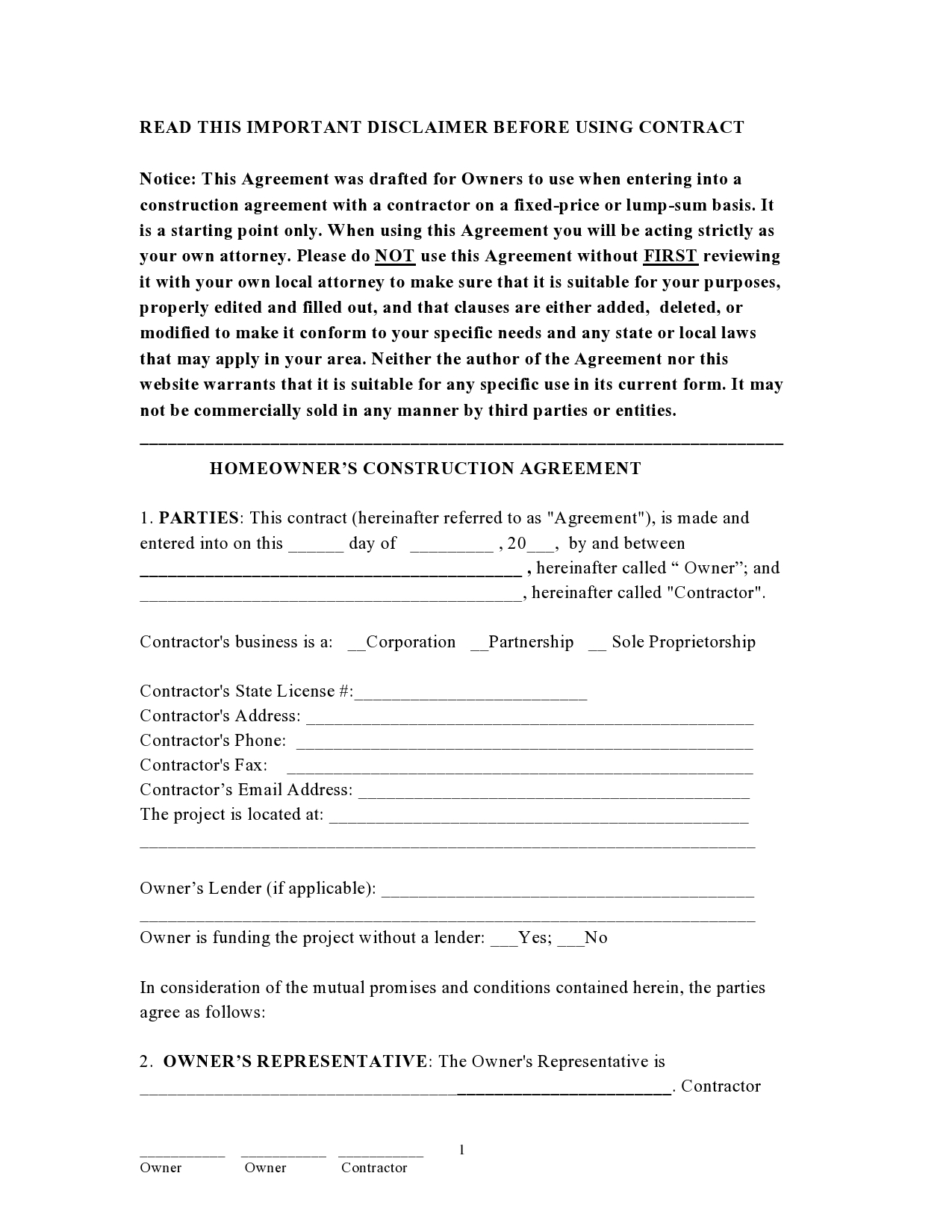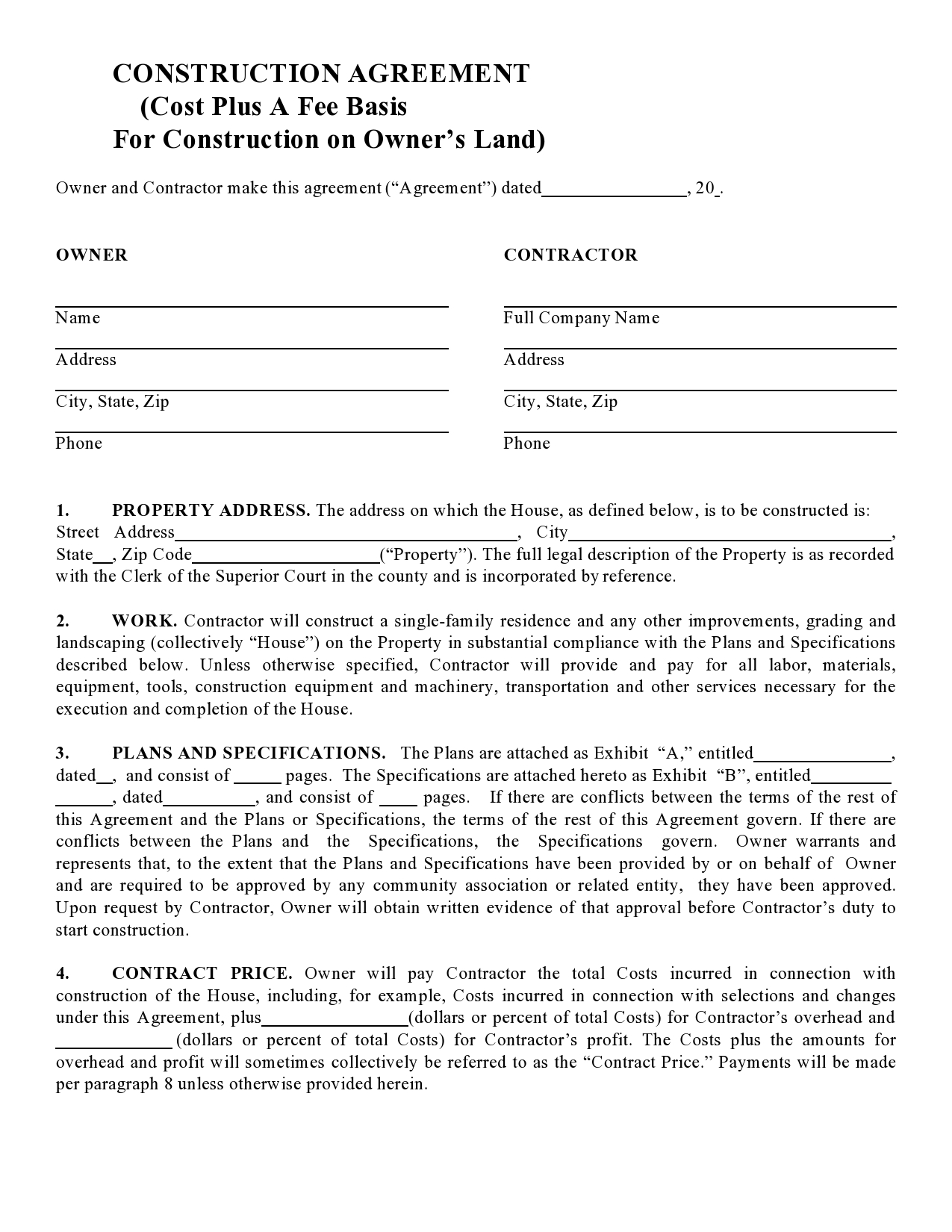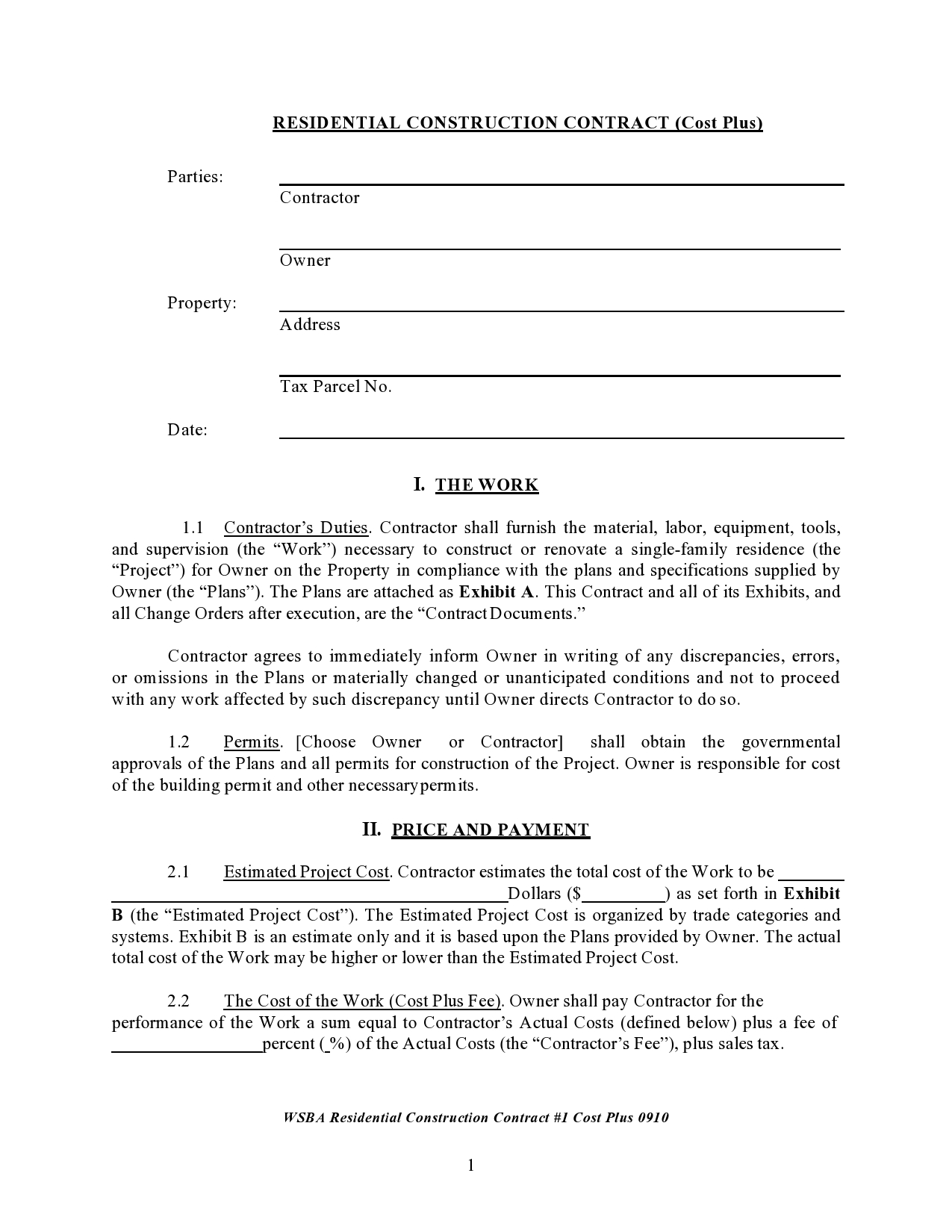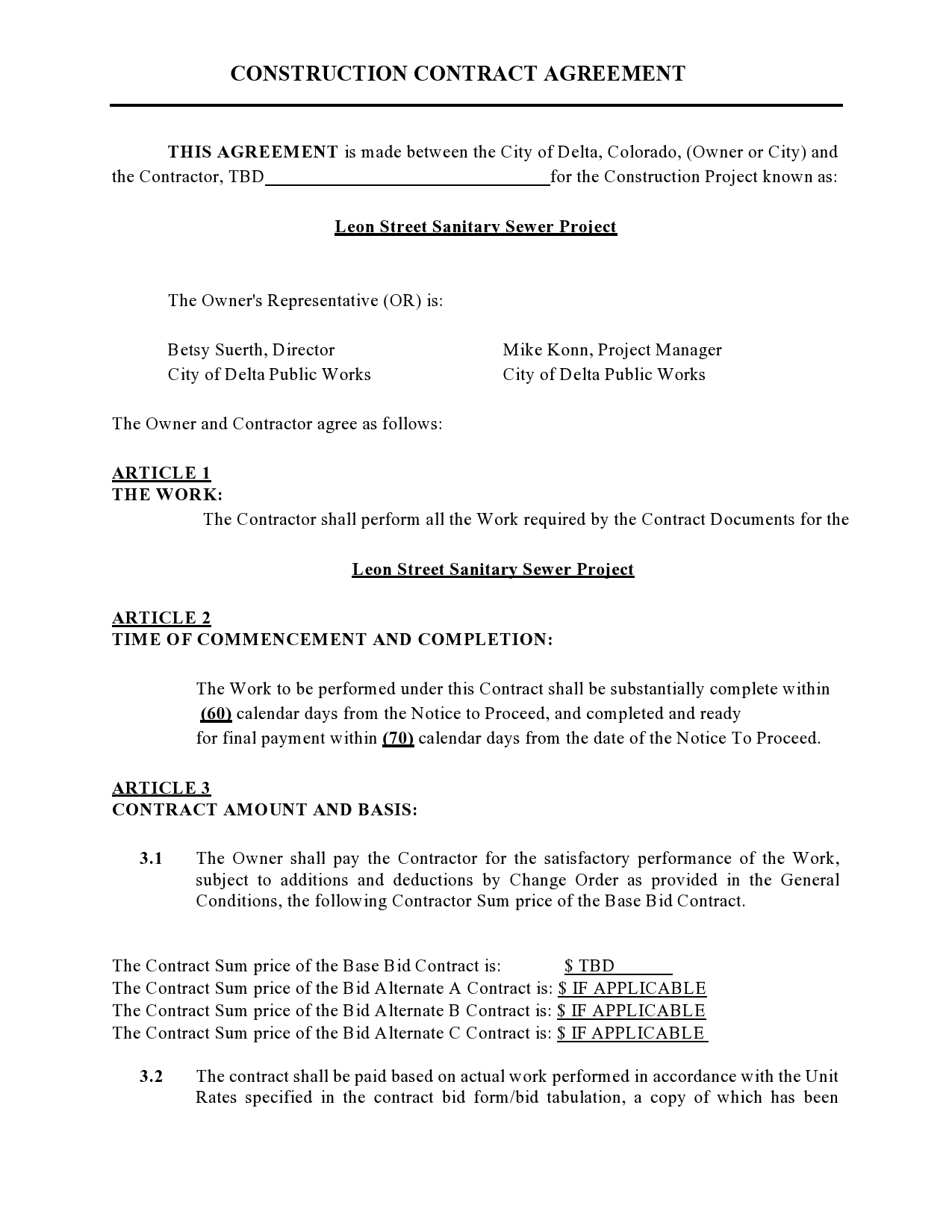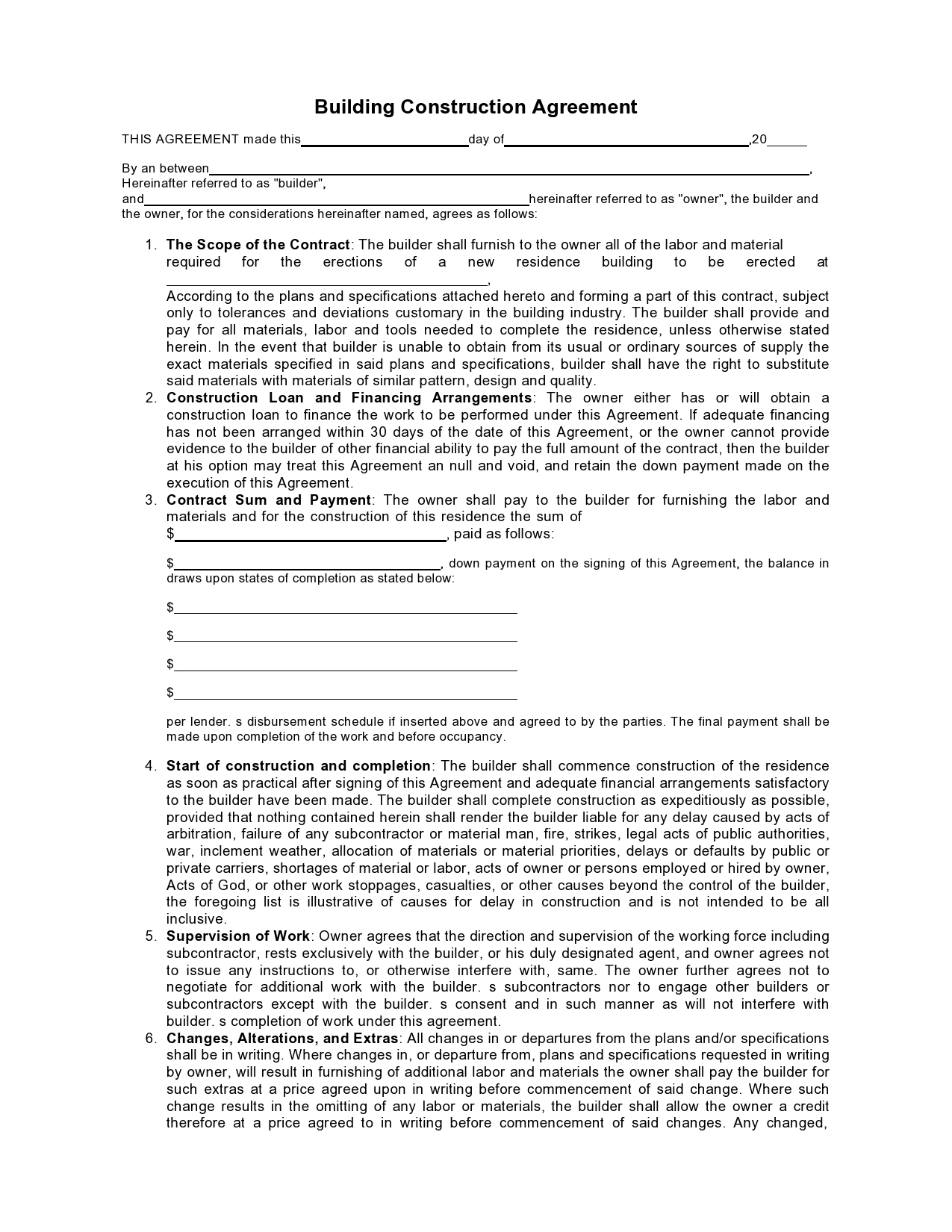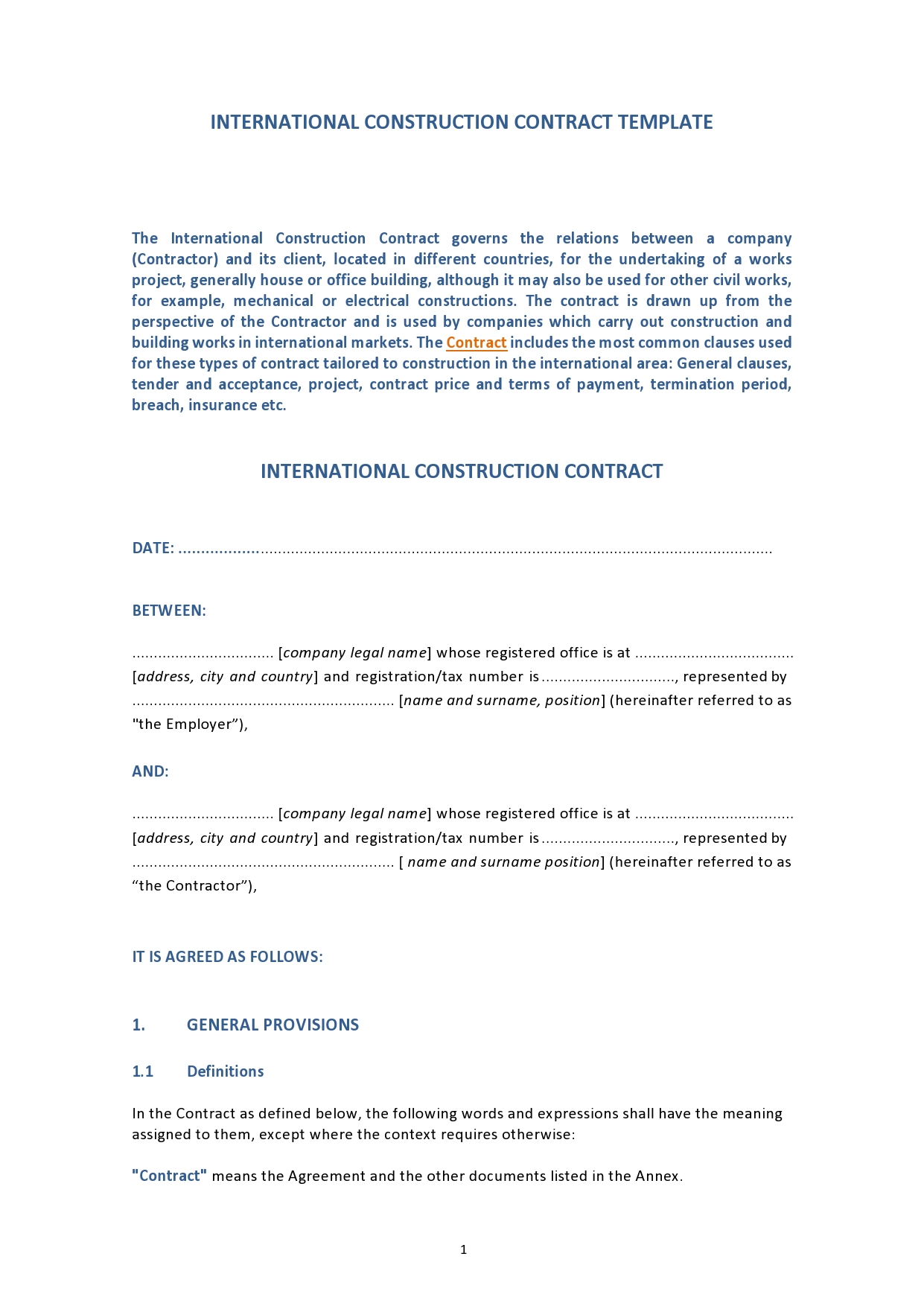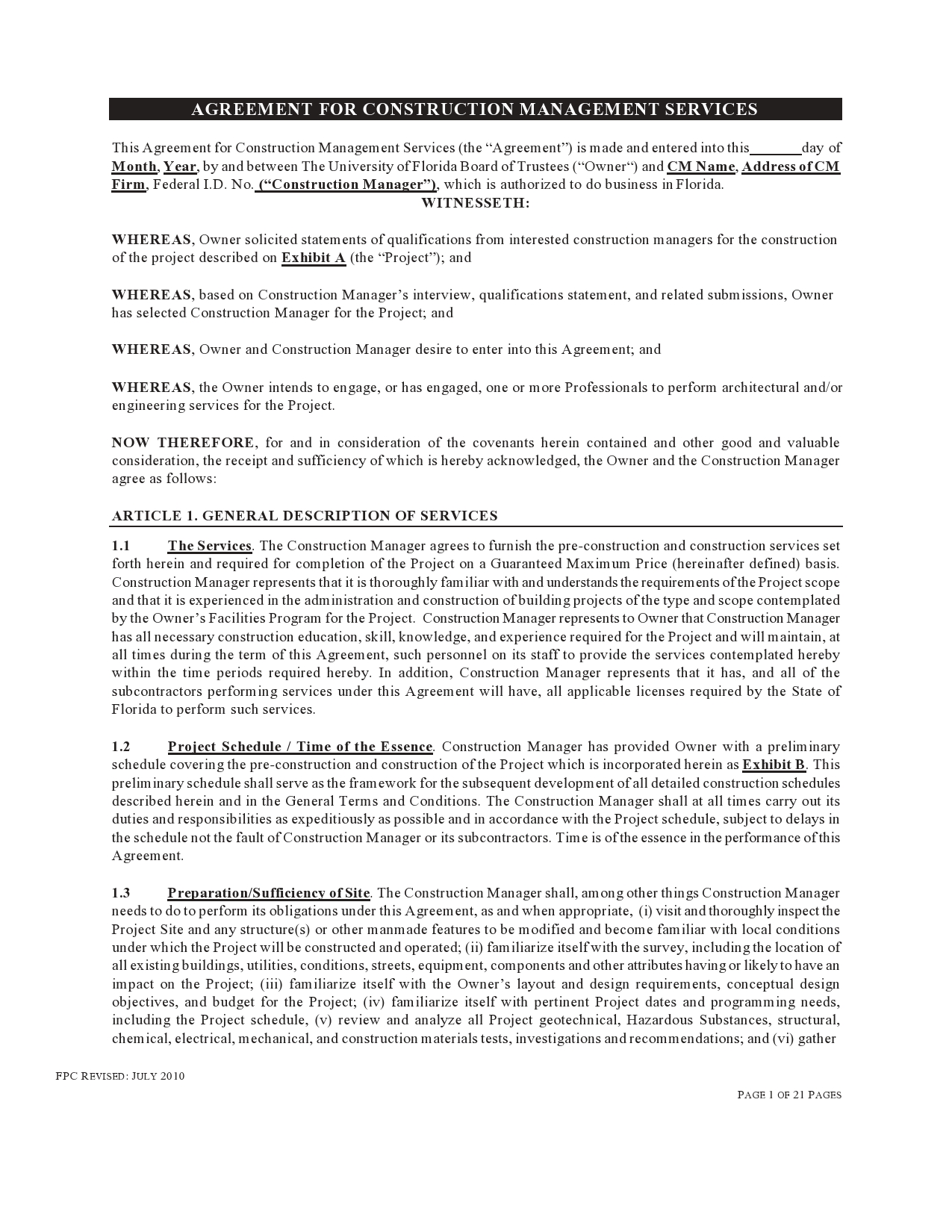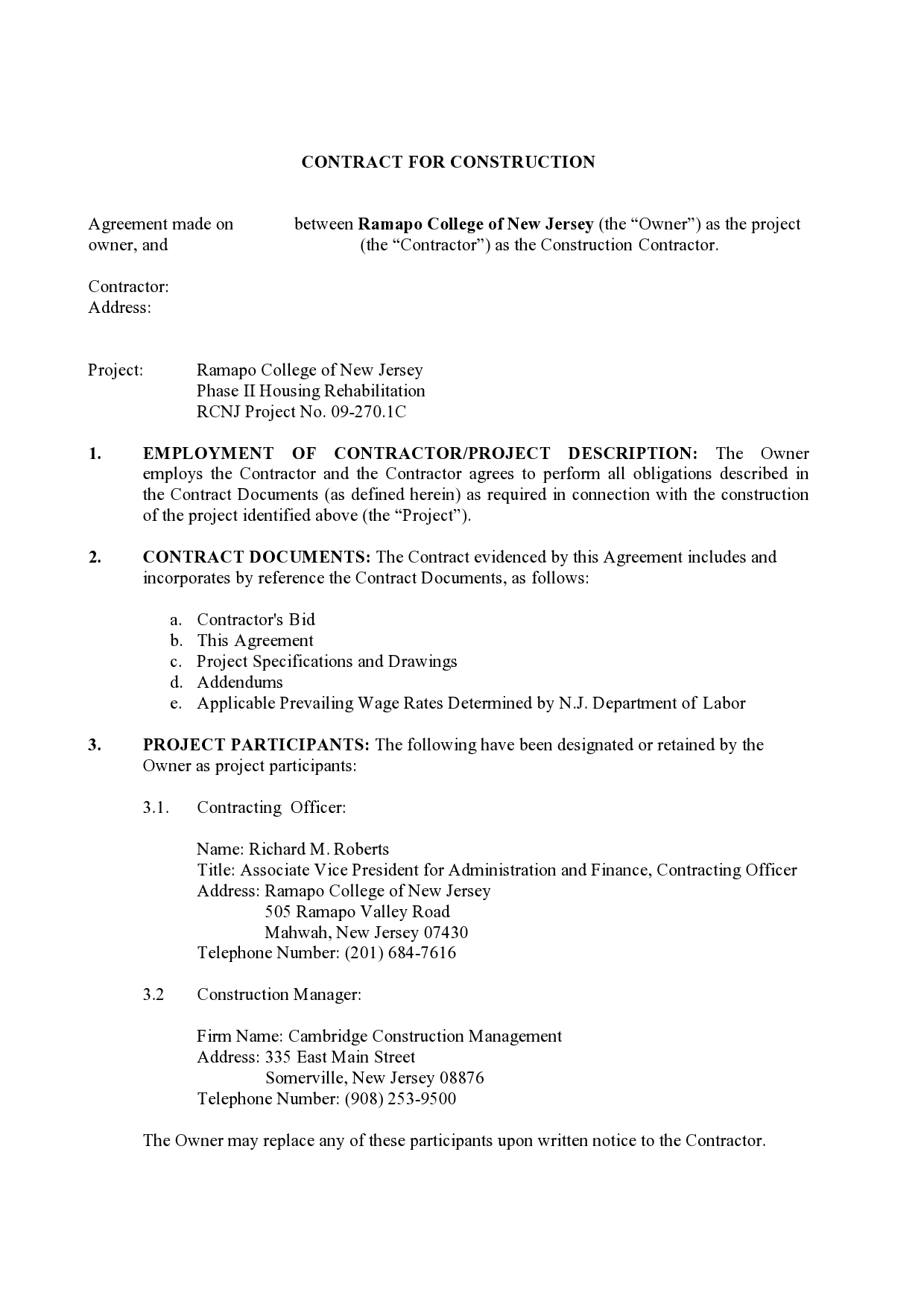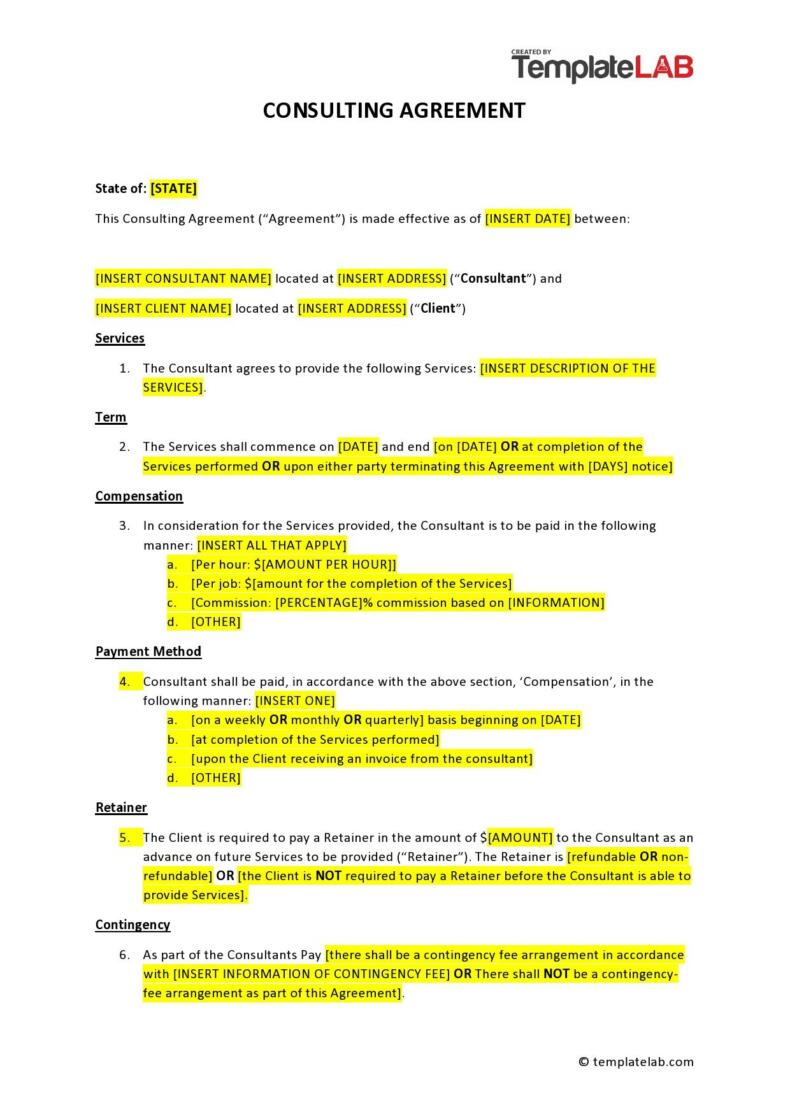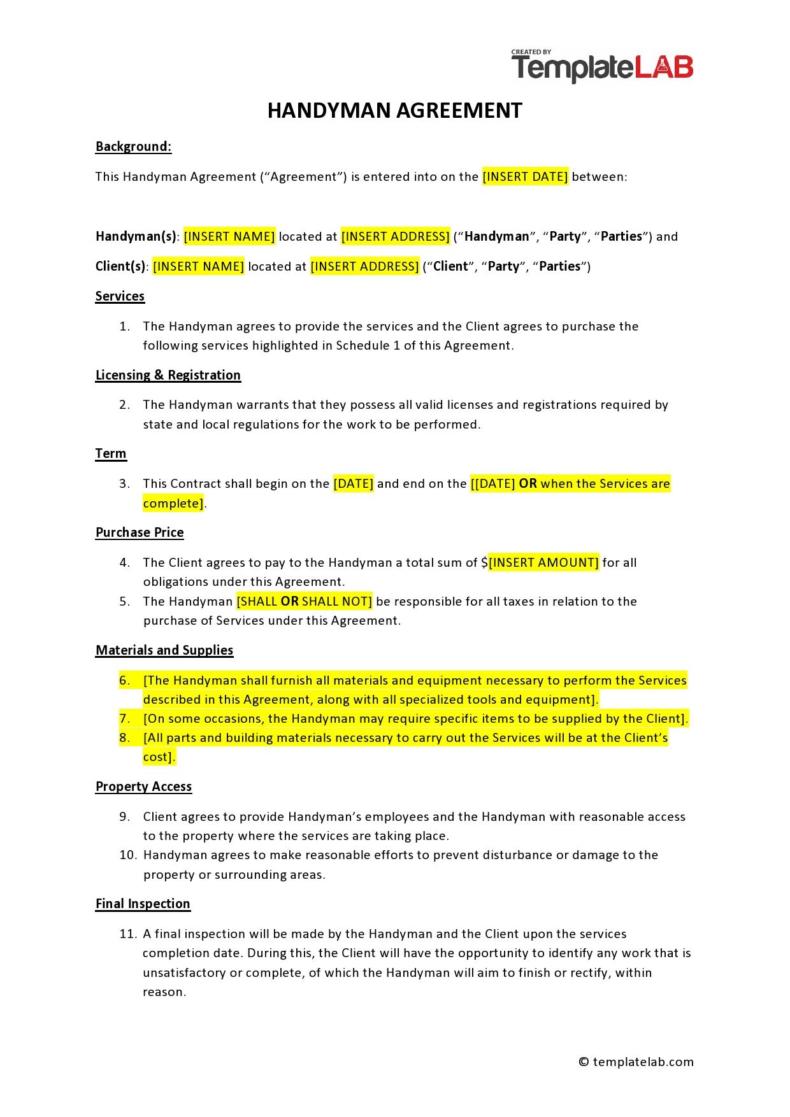Construction contract agreements are essential to the process of booking and arranging this kind of work. No matter what kind of construction job you are writing a contract for, you will need to know what information needs to be included to make the contract binding. The general construction contract can be the most common contract that is seen online to provide you guidance, but you might need to have more information than these simple contracts provide as you draft your construction contract.
This is the guiding document that helps you to know what the job encompasses, and it defines what all the parties who are involved are going to do during the time that the contract is active. This is a legally binding document that provides protection for both parties who are involved in the construction job.
Table of Contents
- 1 Construction Contract Templates
- 2 What is a construction agreement?
- 3 Construction Contract Agreement Examples
- 4 What are the essential elements of a construction contract?
- 5 Building Contract Templates
- 6 How do I write a construction contract?
- 7 General Construction Contract Forms
- 8 Construction Contracts Are Key to Job Completion
Construction Contract Templates
What is a construction agreement?
This kind of construction contract that you are drafting can impact what you need to include in the document. There are different kinds of jobs that you might need to create a contract for. Building contract templates are different from general contractors’ contracts. All of these contracts will need to outline the nature of the job, but there might be more details that are included in some kinds of contracts compared to others.
Some of the things that can differ in specific jobs that are outlined in construction contract examples might be:
- Indemnification: This is what kinds of damages are incurred and required to be paid if there is a loss or some other kind of problem that happens while the job is being completed. Some kinds of jobs are riskier than others, which means that this section might need to be more detailed if there is more risk involved in the job.
- Dispute Resolution: When there are misunderstandings between the parties involved in the contract, there needs to be a discussion about the arbitration, mediation, and adjudication that needs to happen to resolve the conflict. Local laws and other guidelines might apply here and might need to be referenced to make it clear what should happen as the dispute goes to court.
- Termination: Can the contract be terminated, and if so, by whom and in what way? The steps for contract termination should be outlined here carefully if this is an option.
- Inspection: The owner will need to be allowed to inspect the job and will be able to sign off on the job that was done when this clause is included. The other kind of inspection might require legally-required inspections by professional inspectors.
- Insurance: Owners and contractors will both be responsible for getting insurance for their part of the work that is being done. Insurance is often legally required for construction jobs, and both parties involved in the contract will likely need to have insurance in place when the job is active.
- Force Majeure: Parties might not have to be responsible for non-performance due to occurrences that they could not predict. This might be things like natural disasters, weather changes, lack of available materials and supplies, and more.
Construction Contract Agreement Examples
What are the essential elements of a construction contract?
These contracts can also be called by other names. The name of the contact will not impact the legality of the document in question. Your state or local area might commonly use one name over another, and this means that you can just use the most common name if you wish.
- Construction Agreement
- Construction Contract
- Construction Management Agreement
- Service Agreement for Construction
- Construction Services Contract
- Contract for Construction
- Construction Contractor Agreement
- Contractor Agreement
The construction contract template is often essential to any kind of construction job, and you will need these general items to be included in the contract that you have drafted:
- Owner of the property
- General contractor name and information
- License number for the contractor (state licensure number)
- Worksite information
- Description of the work that needs to be done
- Contract price and the payments that will be paid out as the job progresses
- Contract documentation that needs to be done to approve and proceed with the job
- Materials and labor that need to be used to complete the job
- Start and completion date
- Licenses and permits that will be needed for the job
- Subcontracts that must be arranged or people who are hired for this job
- Work changes and how they will be handled once the job has been started
- Warranties about how the work will be in regard to quality and completion standards
All of these items will have to be included for any basic job, and there might be further detail that needs to be added if your job has unique features and other kinds of arrangements that need to be made a note of.
Building Contract Templates
How do I write a construction contract?
- Owner: This is the party that has hired the general contractor who is going to do the work. This might be the property owner alone, or it could be a combination of the property owner and the investment people who are helping to back the project and make it possible. There might also be a board of people who are making the project possible.
- General Contractor: This is the party who is doing the day-to-day supervision of the job as well as managing things like budgeting, hiring, and maintenance of timelines and other essentials for the job. This might be a specific person, or it could be a team of people, depending on the size of the job.
- License Number: The general contractor will need to provide their licensing board number, and this information needs to be included in the documentation that governs the job.
- Worksite: This section will need to outline the address of the job site as well as the information about the future of the site. The more detail that you can include here, the better.
- Work Description: This is the section where the job will be thoroughly described. This section can be as detailed as necessary to explain the job correctly. You can clearly state which workers will handle which part of the job, and you can explain the stages of the job as well. Some construction jobs will need to happen in more stages than others, and this information can be essential to your project planning and execution. Project plans and other specifications might need to be added to the document here to help clarify the job.
- Contract Price and Payments: The total price of the contract needs to be listed here, and the payment schedule for each section also needs to be explained. There are various ways to structure the payment of the job. The specifics of the payment structure of the job need to be clear, and you should not leave anything in this section to chance.
- Contract Documents: These are the blueprints, the drawings, and the other information that is needed to describe and guide the job through each step. The blueprints for each type of work that needs to be done might have been done by another party, but these items must be offered to everyone who is involved in the contract. Correct documents that show the way that the job is to be done are critical to the success of your job.
- Start and Finish Date: The starting date of the contract and the completion date of the contract should be listed clearly. You can also break down the total job into sections that have their own start and finish dates. This is really common for large jobs, but a simple job might just need a start and finish date without any other stages listed for completion.
- Licensing and Permits: Licenses and permits are key to the completion of the job, and you will need to be sure that you are getting all of the right licenses and permits on file for your job. Work that is not done with the right permits and other kinds of licenses on file might not be approved when the final inspection is done, and you could lose time on your job getting this kind of oversight ironed out.
- Subcontracts: If you have had to hire someone to do a small part of the work that you do not have access to skilled labor, this information needs to be in the contract. This might be common to all steps of your job, or it might just come into play for small parts of the job. You will want to be sure that you are getting all the relevant information for this part of the job listed in the contract. This means that business names, contractor names, and contact information should be present in this part of the document. You will also want to be sure that the exact nature of the work is described here. You might also want to put a start and finish date into this section for each subcontract.
- Work Changes: How changes to the job’s overall plan will require an explanation in this section of the contract. Things can change during any job like this, and there needs to be an explanation of the way that these changes are handled in the contract. There might have to be written changes, a board meeting, or some other steps taken to approve and document each work change that has to be made during the job.
- Warranties: Warranties are part of any job that is being done in construction. This is the promise that states what the condition of the work will be when the job is done, and it might also include information about what is to be done if the work is not up to the stated and promised standard.
As stated above, dispute resolution might need to be part of your contract information, and you might also need to explain the details about how the contract can be terminated if this should be desired by either party. There can be many moving parts for large construction jobs, and sometimes the working relationship between parties will end for some reason. When there is no information about how this process is to be handled, the construction job can falter and necessitate intervention by legal professionals before the contract can be fully executed.
The more detail that is involved in your construction contract, the better. When you do not leave anything up to chance, you will be much more likely to be able to keep the job on track to completion. The construction contract is there to support the job and its many stages, and this is why you want the contract to be well-executed and complete.
General Construction Contract Forms
Construction Contracts Are Key to Job Completion
When you are working on or planning a construction job, you will need to have a quality construction contract in hand to guide the project. The better your construction contract, the more likely it will be that your job will be completed correctly and on time. Construction contracts explain how to execute the job, how it will be paid for, and who will be hired for parts of the job. This is the guiding document that explains how the job will be done, and it must be correct and well-thought-out to be useful to all the parties who are involved in the job.
If you have never written one of these documents, you might want to be sure to look at examples to match the language and the legal information that needs to be included in the contract. There can be a lot of variety to the information that needs to be present in the document that you are drafting, and you have to make sure that you include all the sections in your contract that are listed in this guide. The better your contract, the more likely your job will be to get done on time and on budget.

